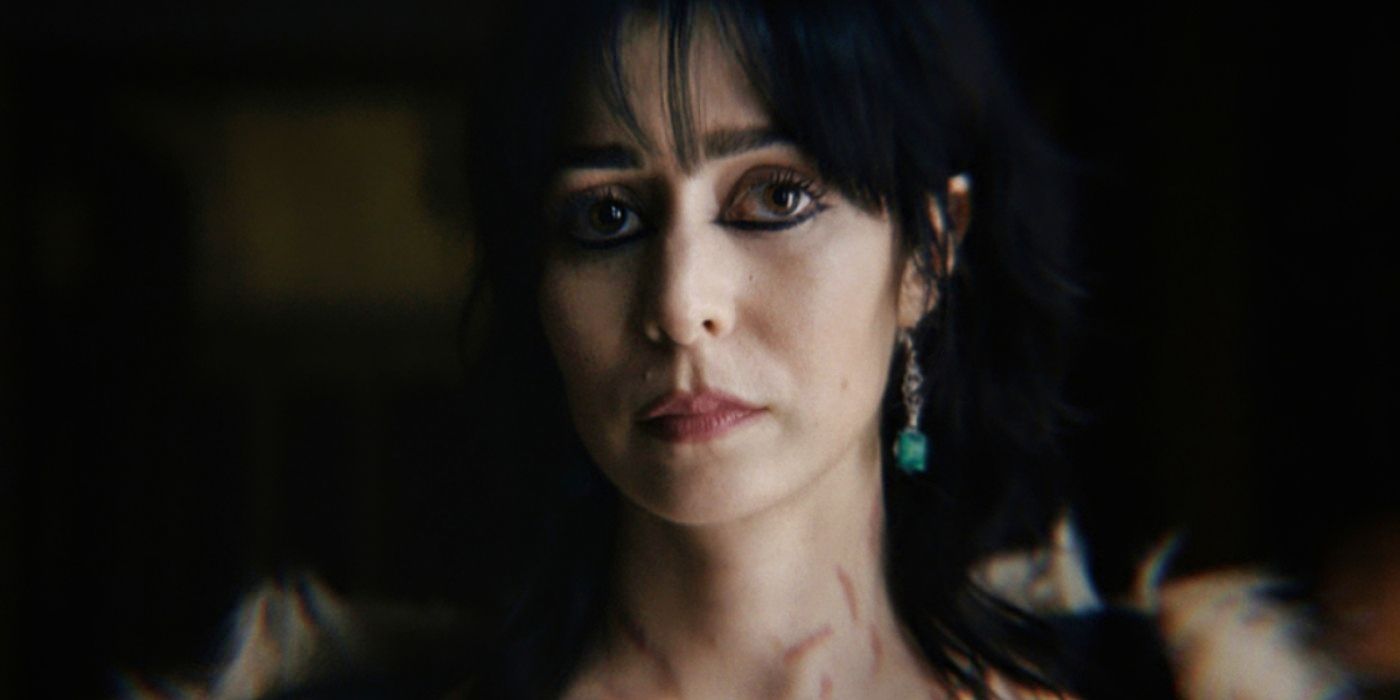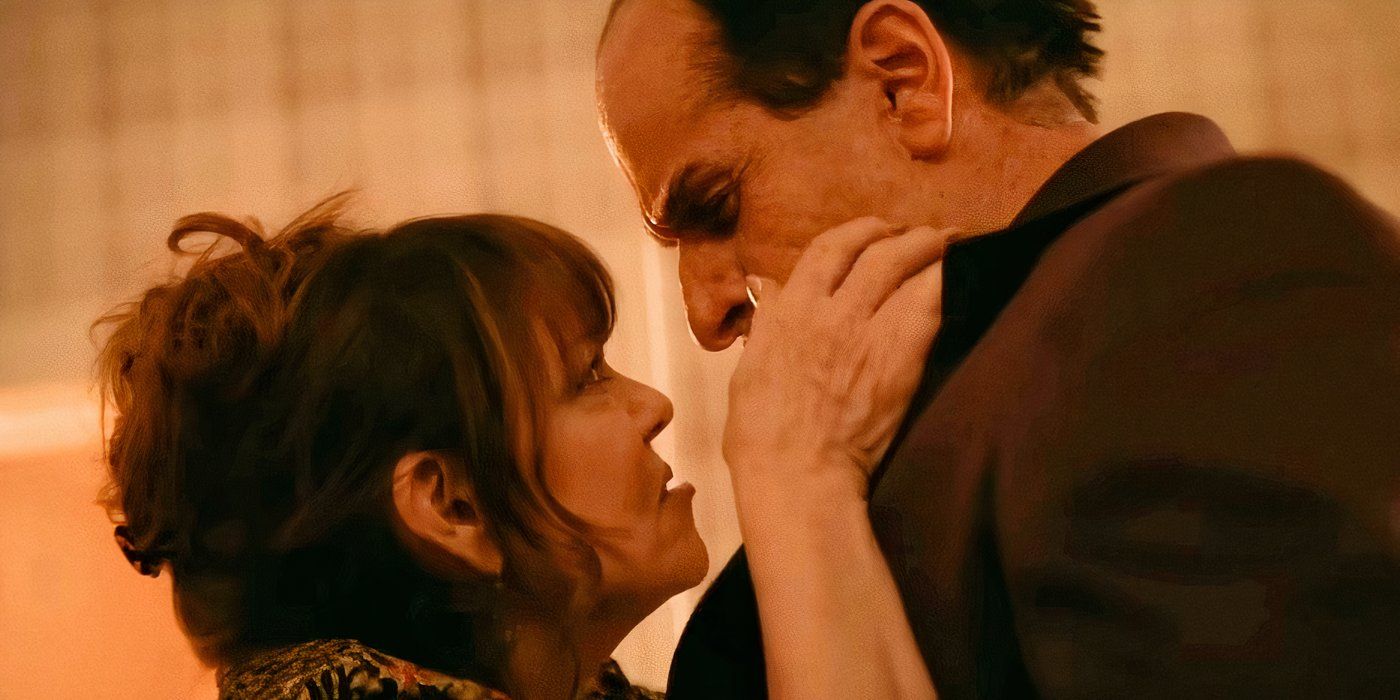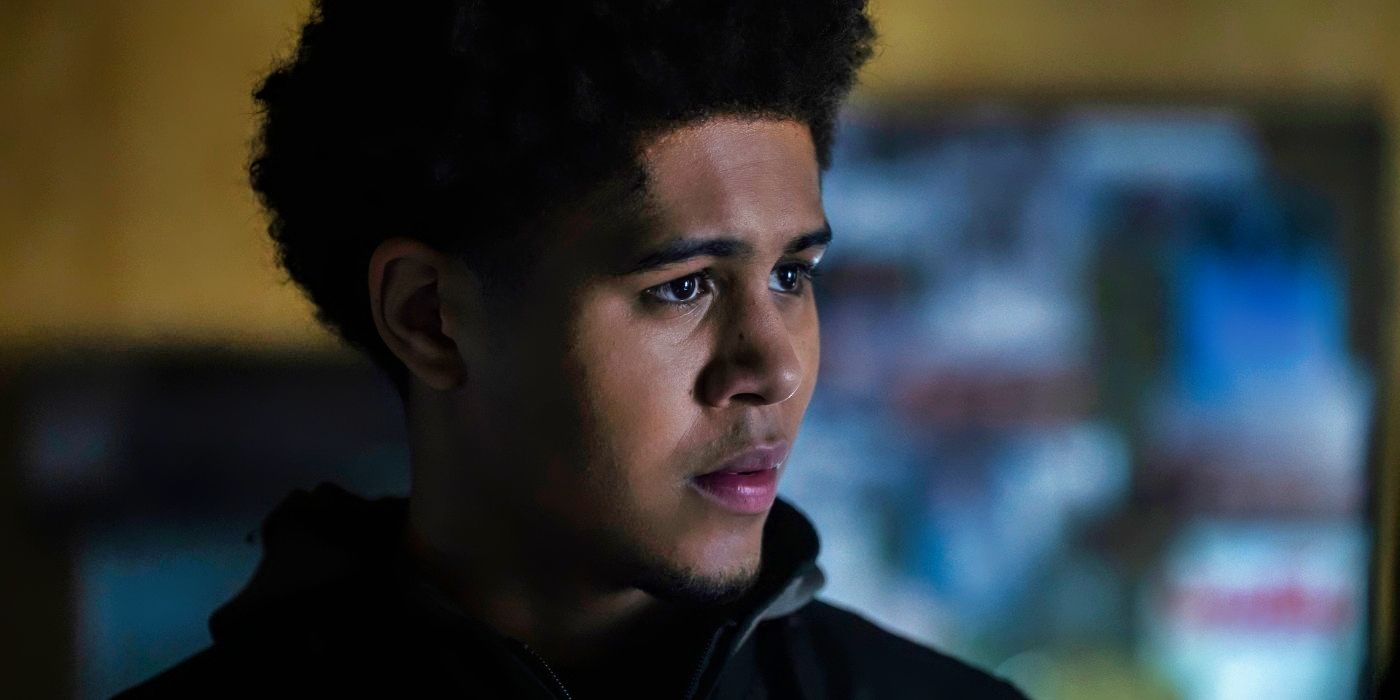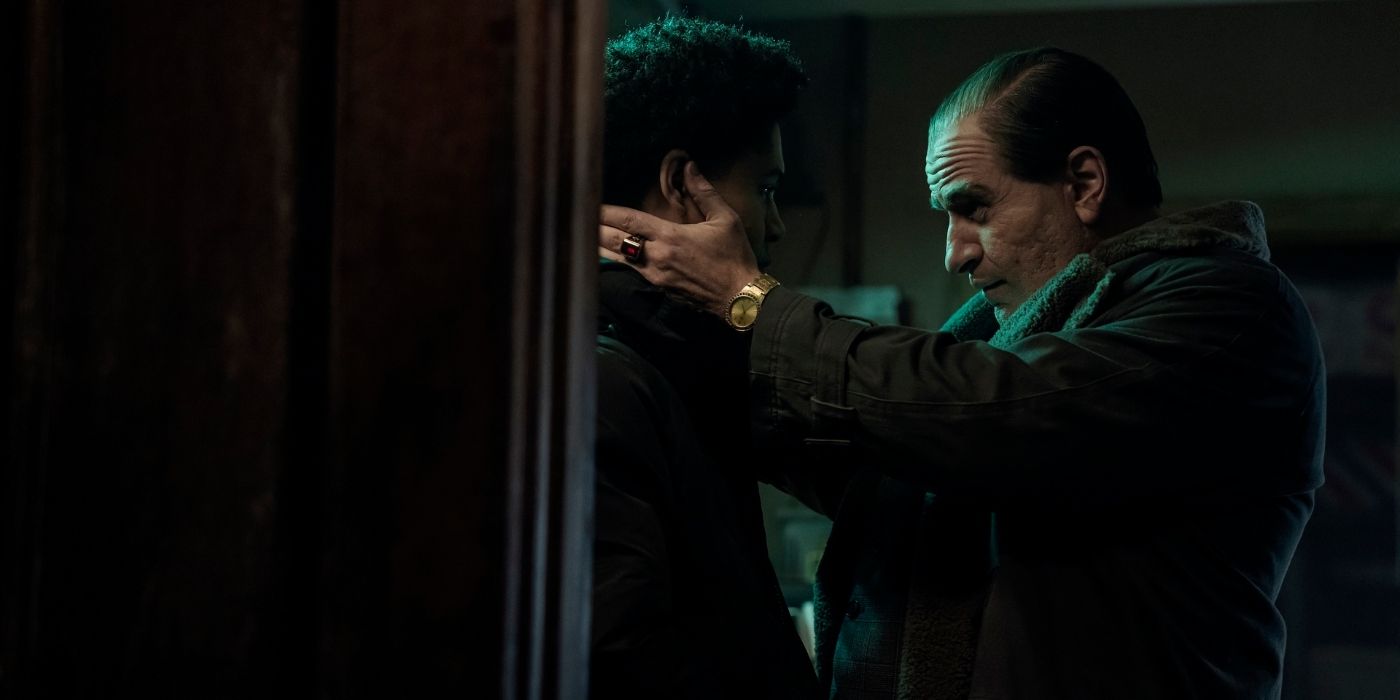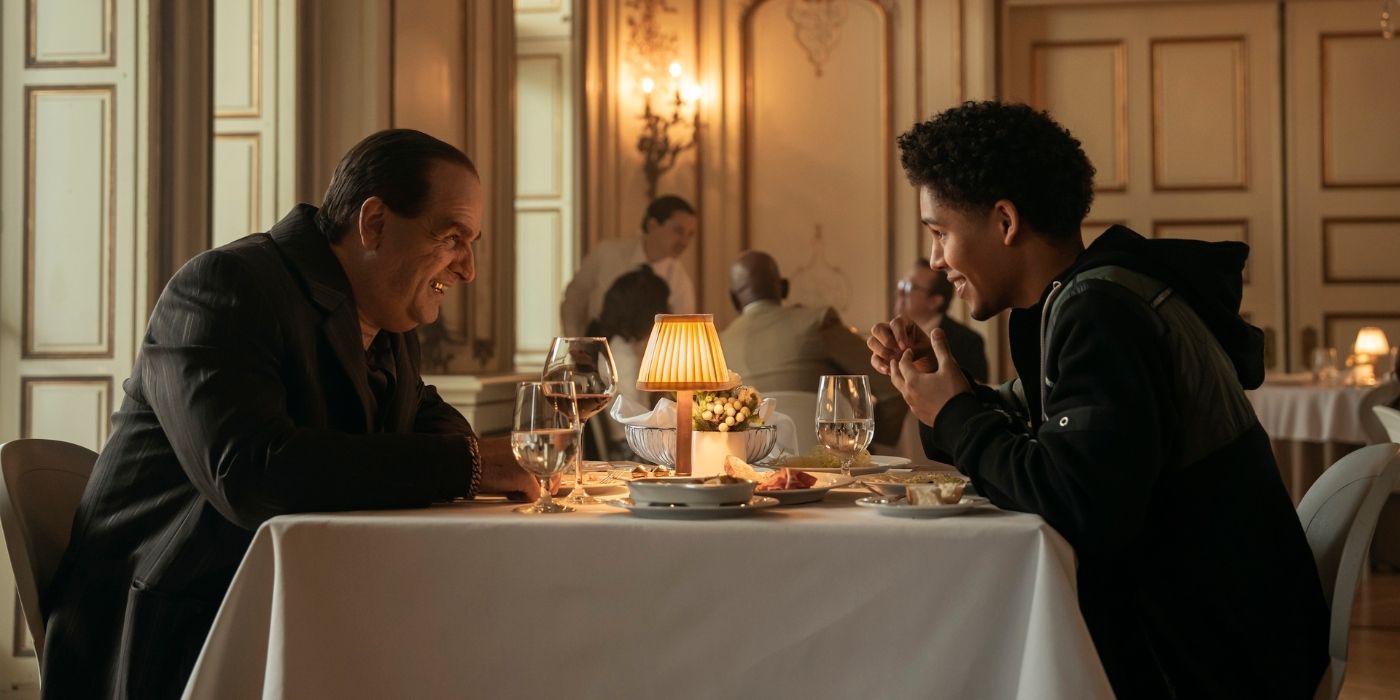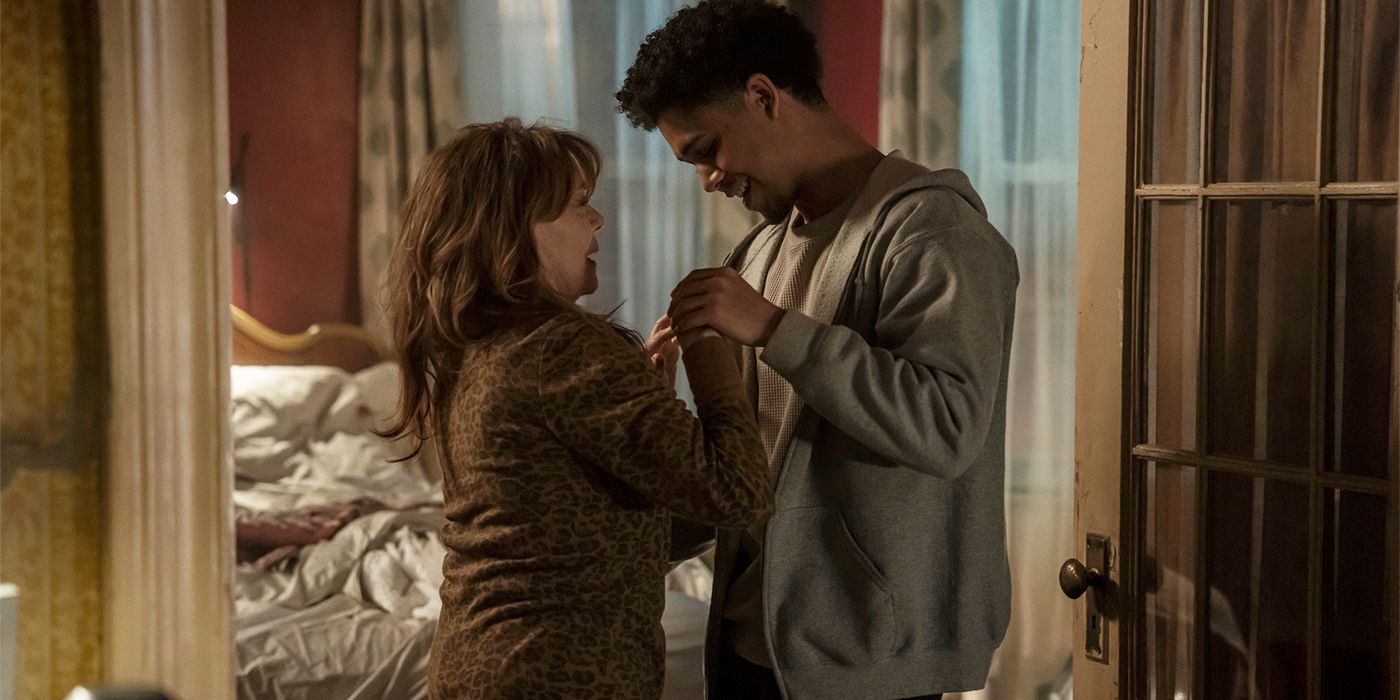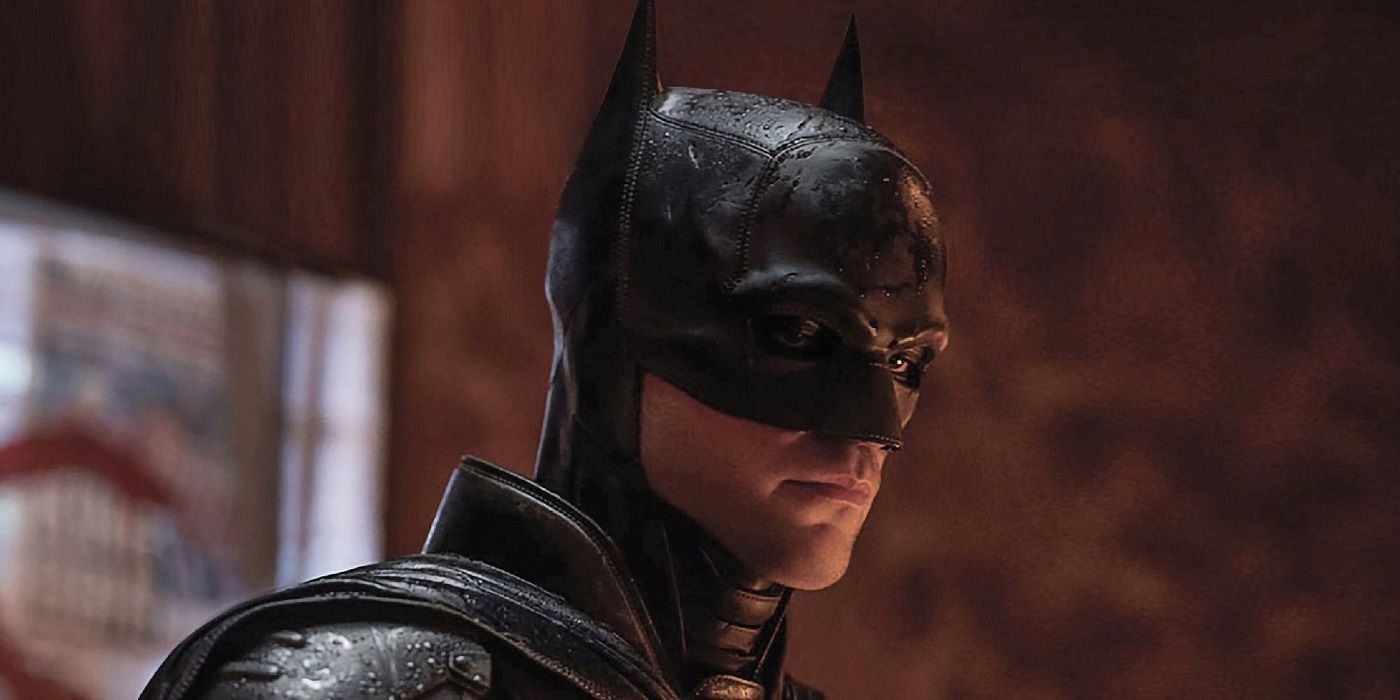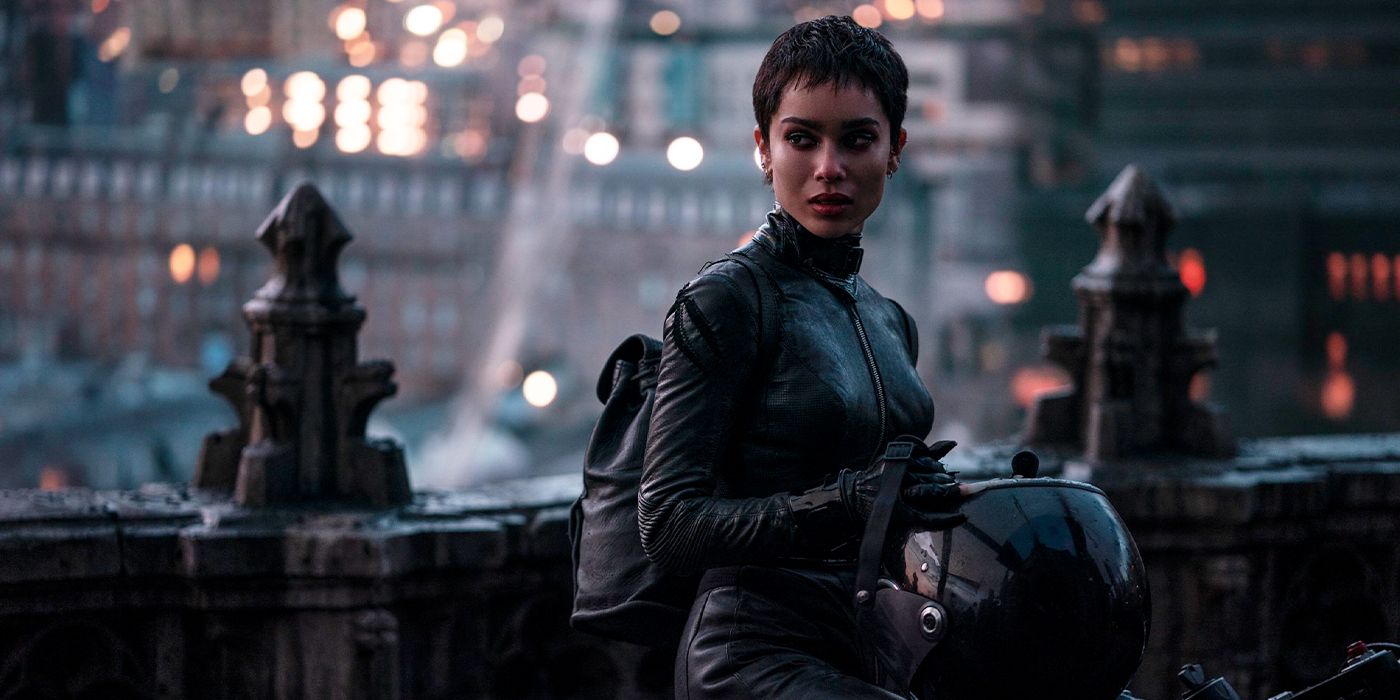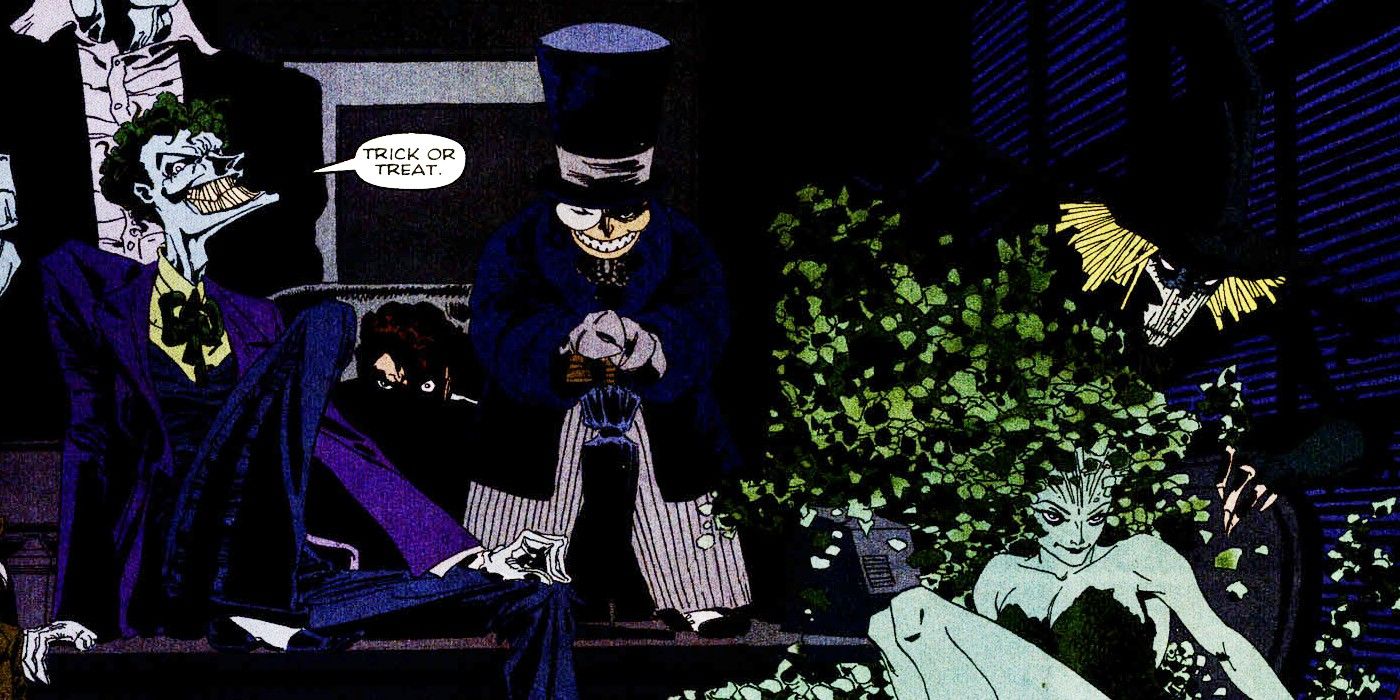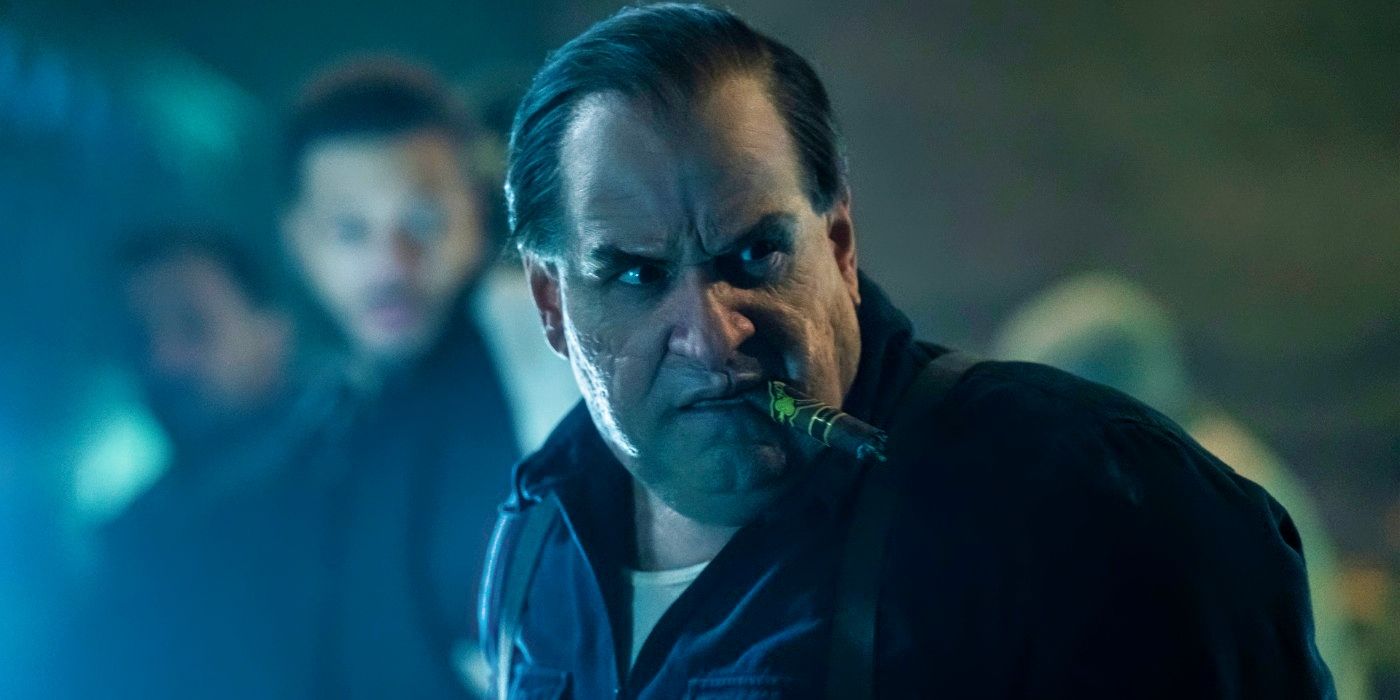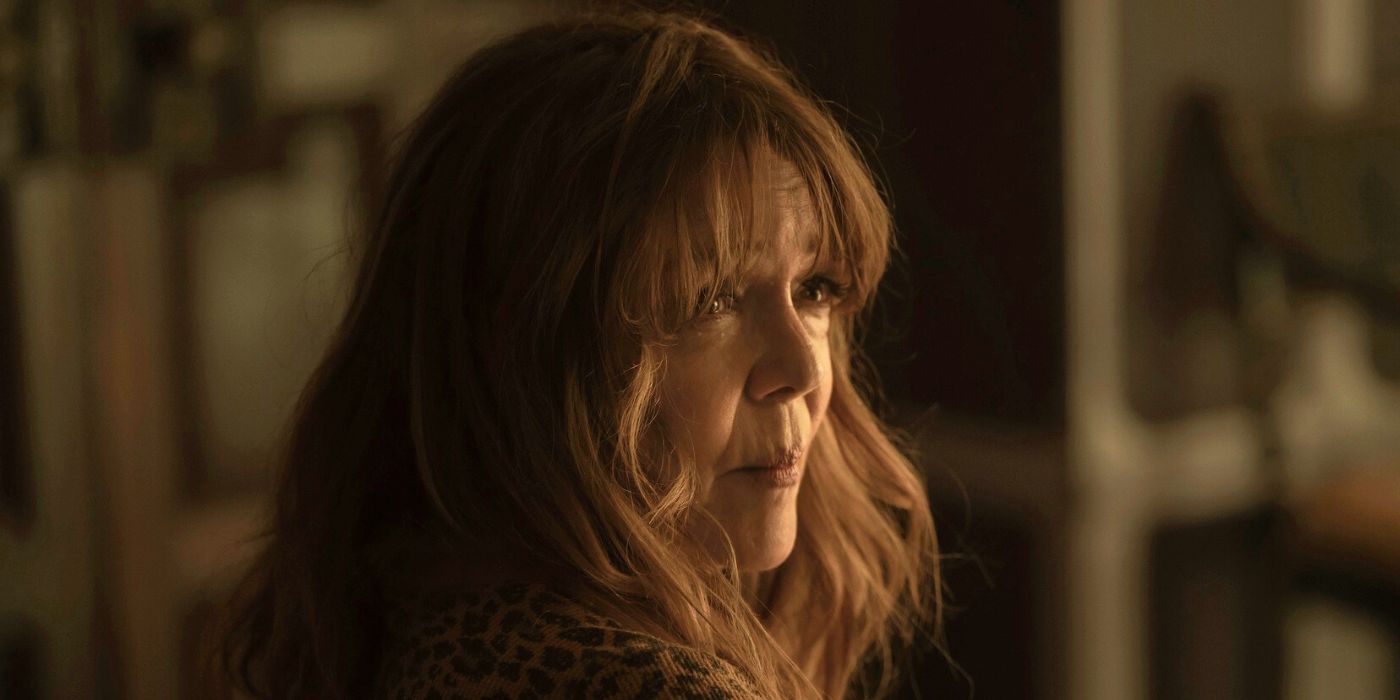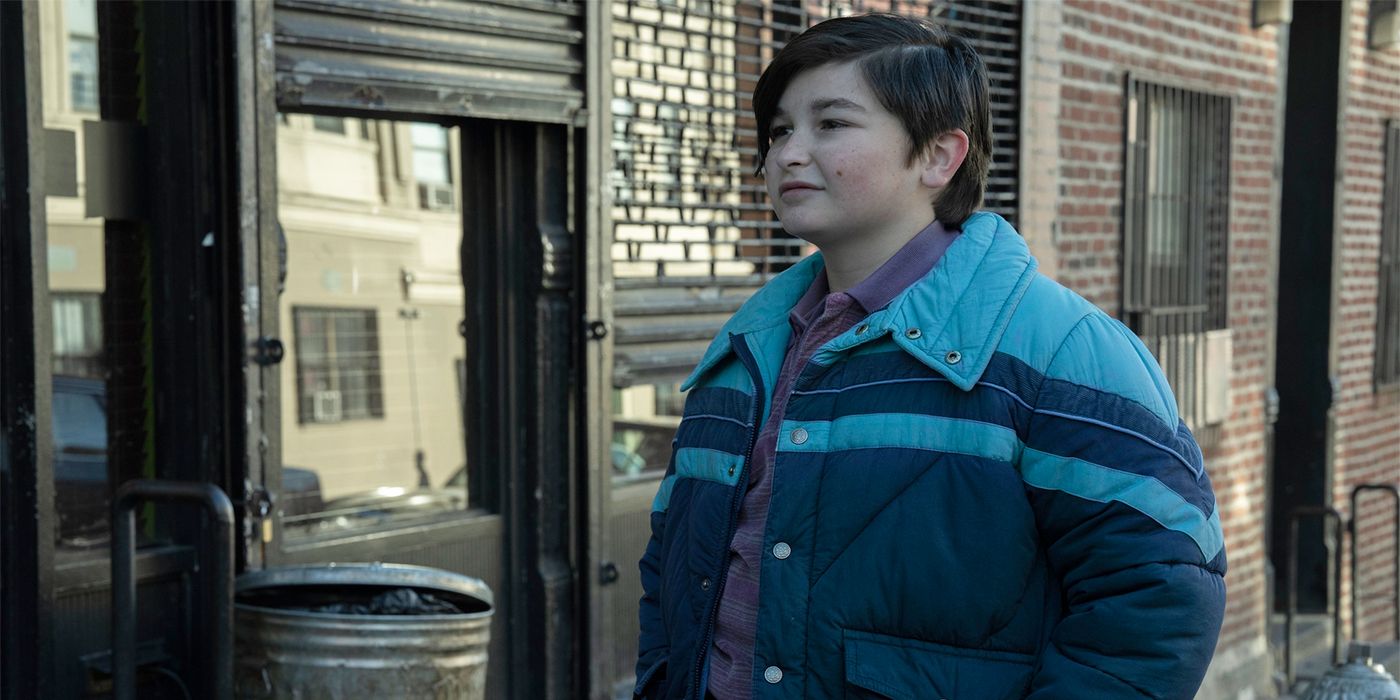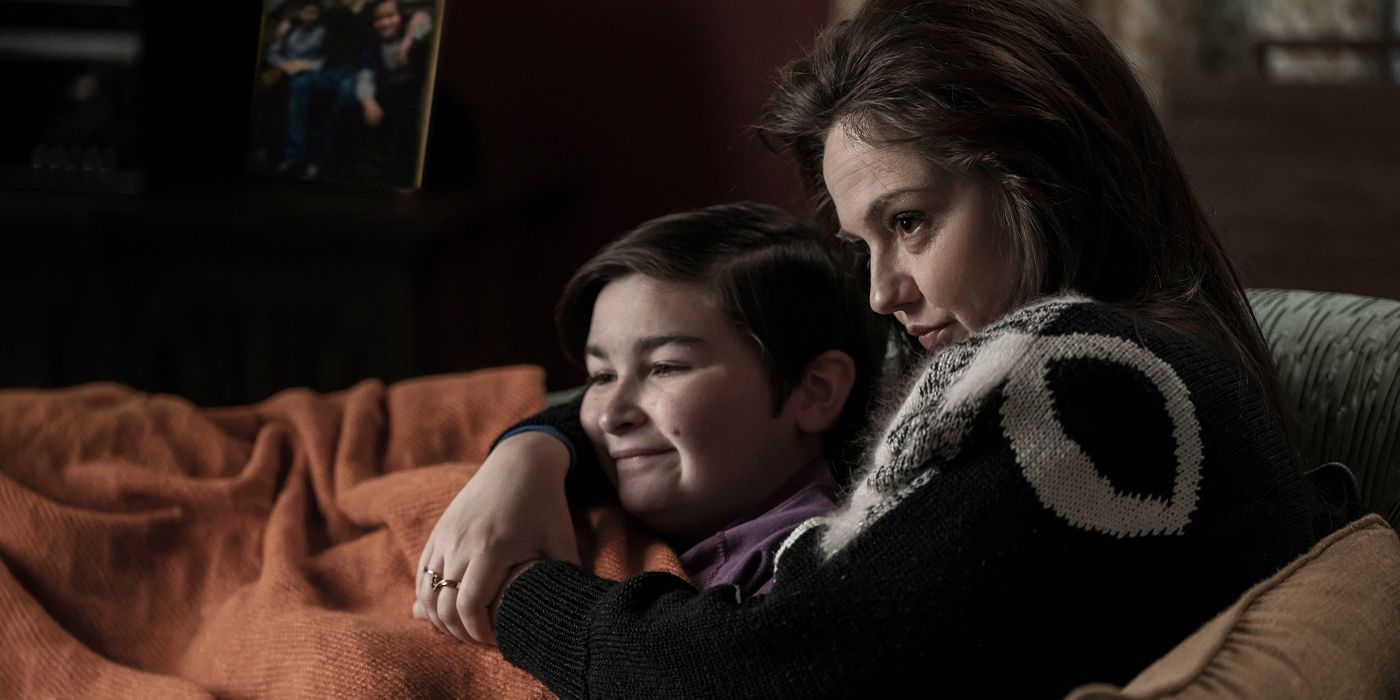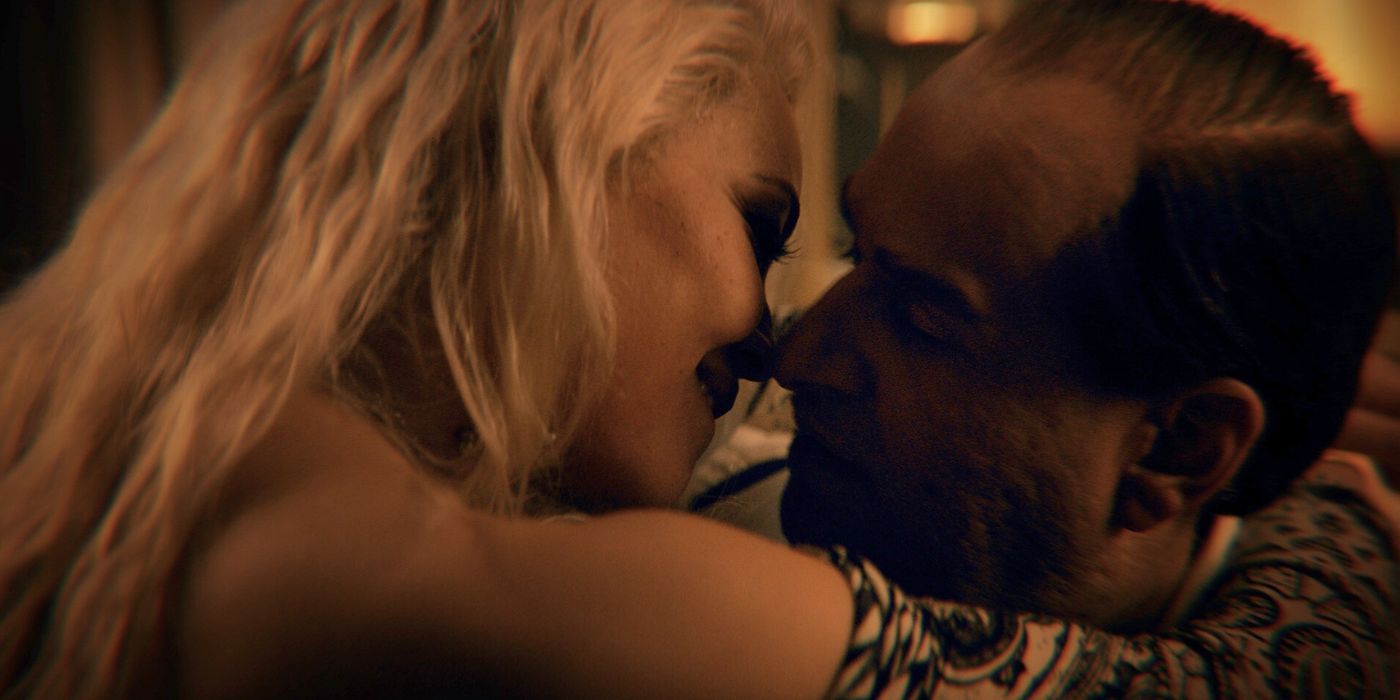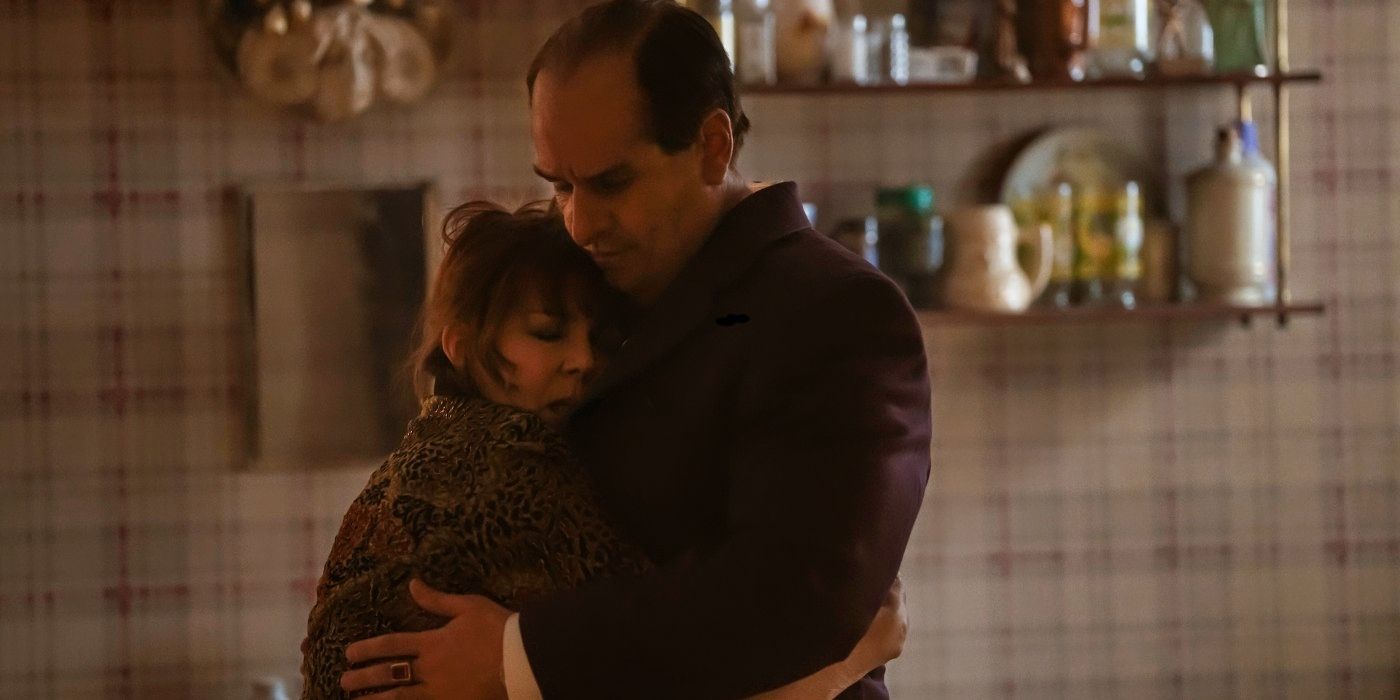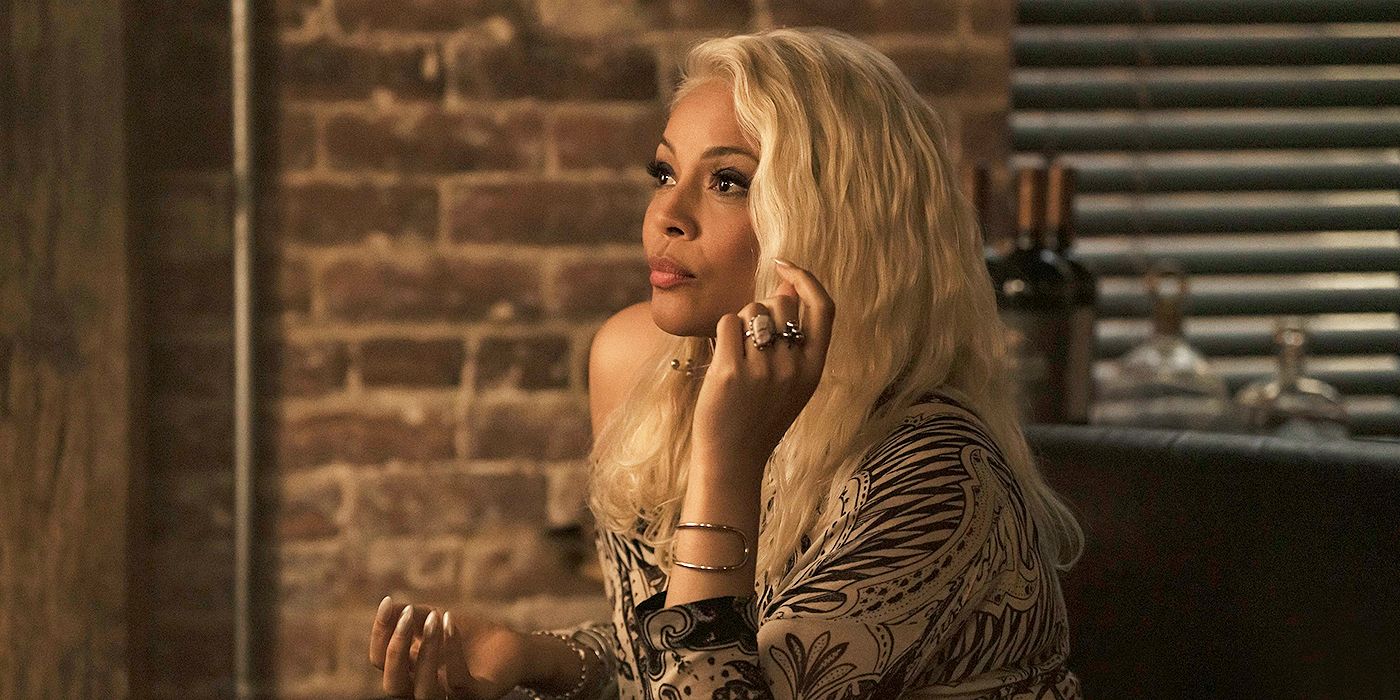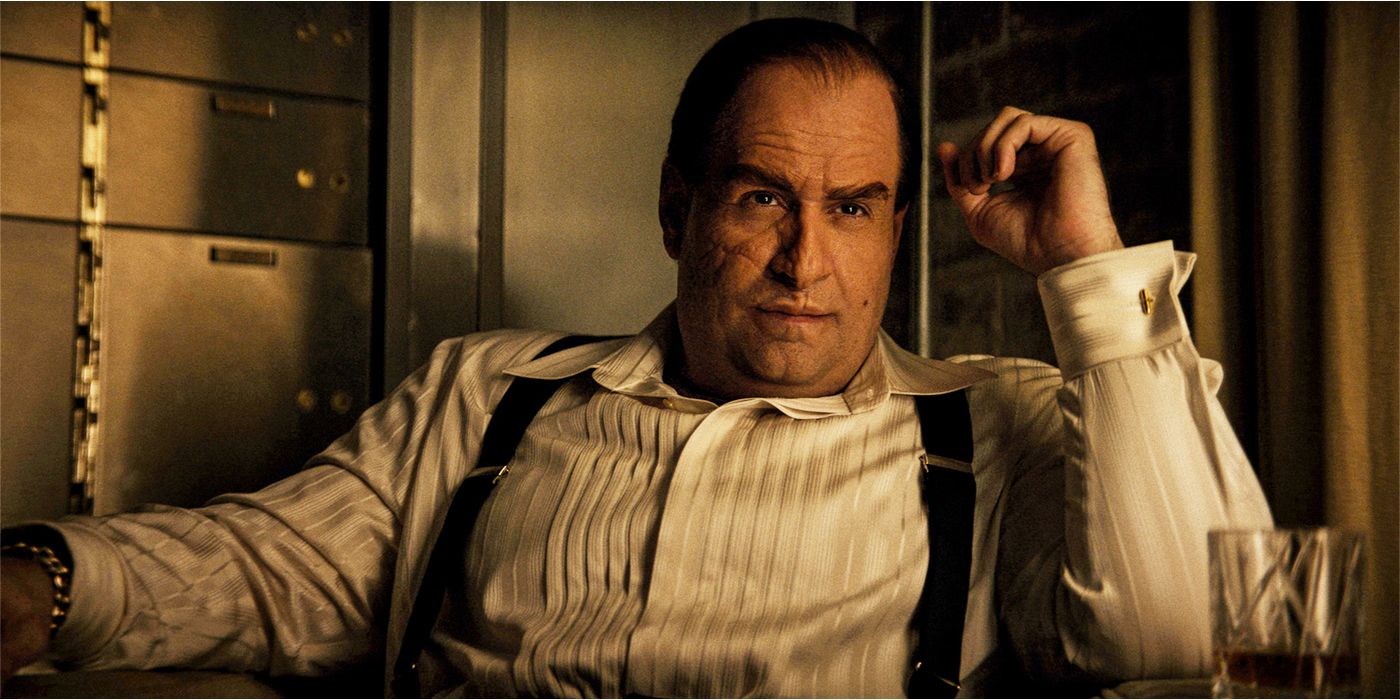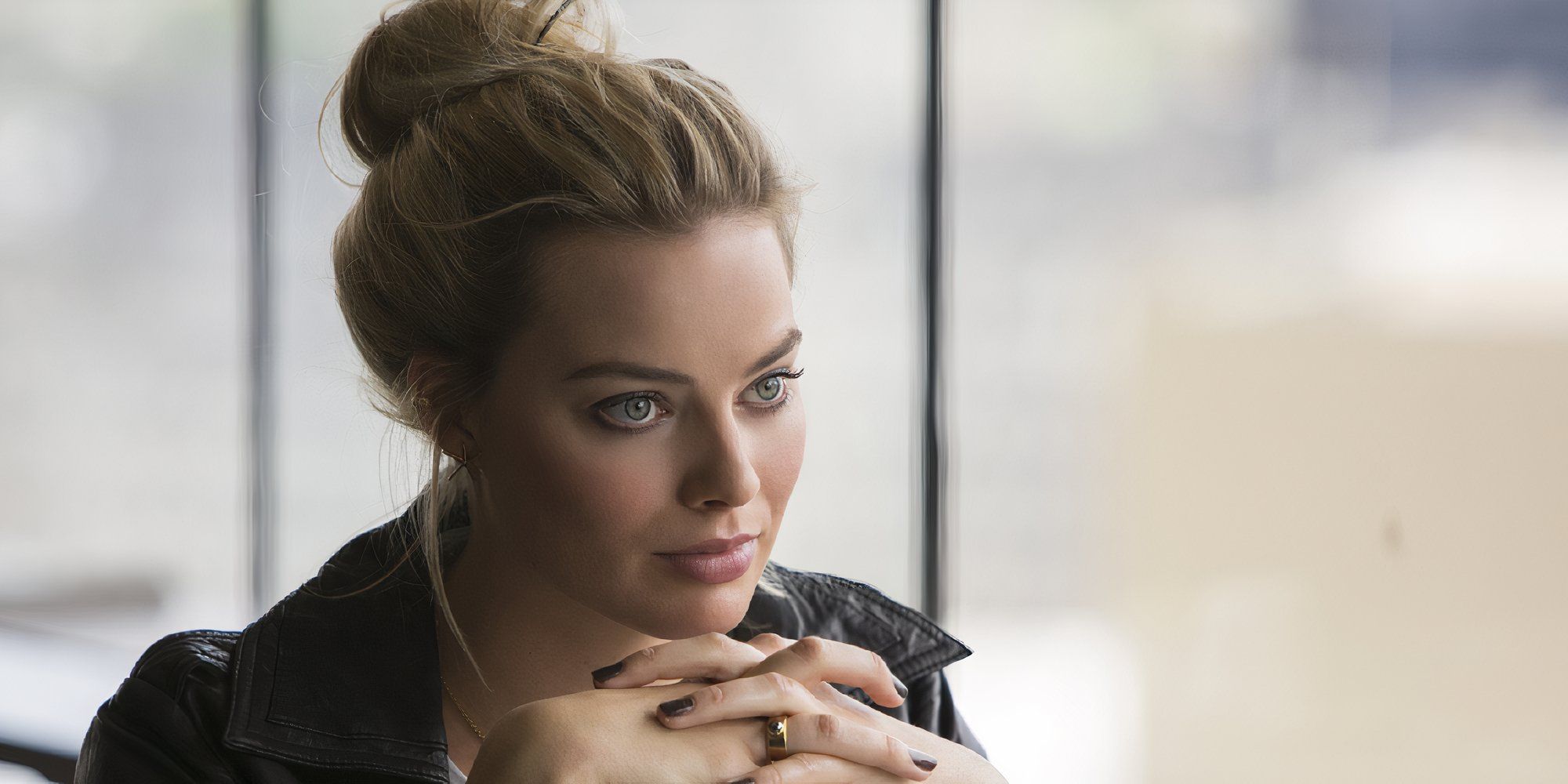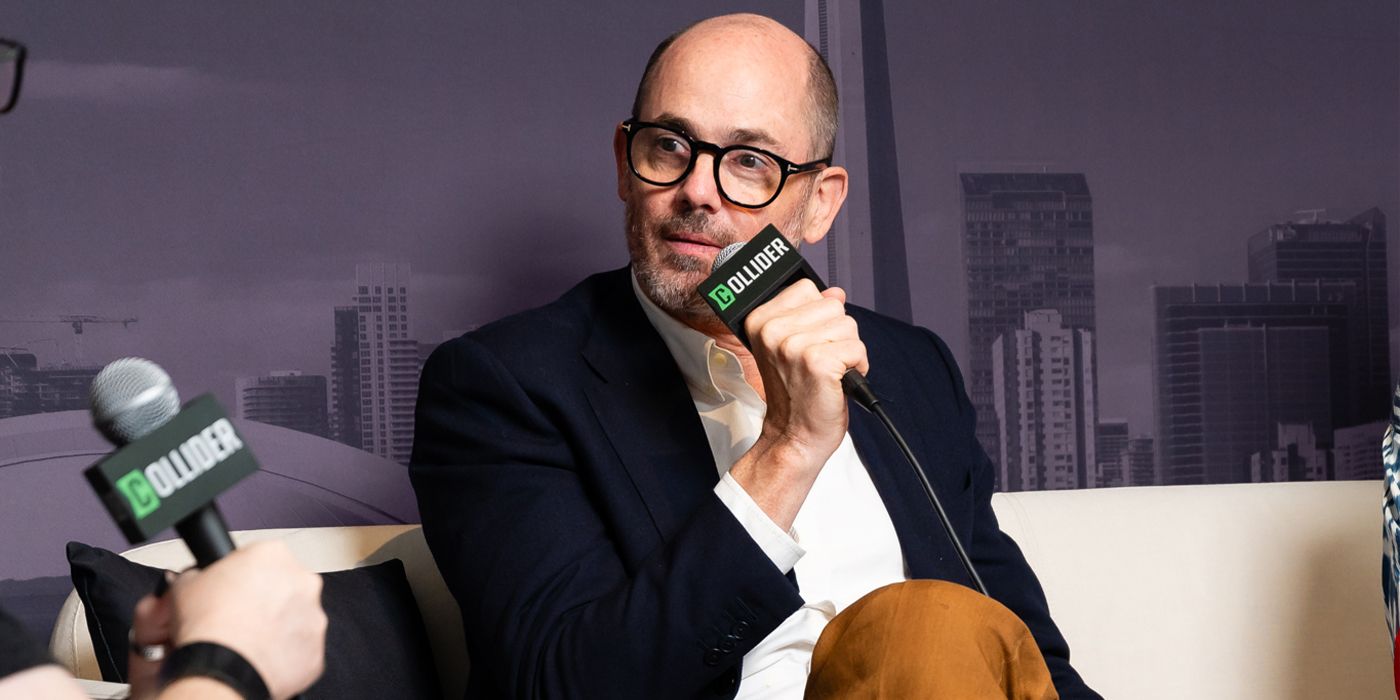Editor’s Note: The following contains spoilers for The Penguin finale.
The Big Picture
- Collider’s Steve Weintraub speaks with Colin Farrell for
The Penguin
‘s season finale. - HBO Max’s
The Penguin
is a series spin-off of Matt Reeves’ The Batman that focuses on gangster Oz Cobb’s strategic climb to power in Gotham’s criminal underworld. - During this exclusive interview, Farrell discusses tons of spoilers from Vic to Oz’s mother, working with Reeves,
The Batman: Part II
, and the possiblity of a second season, as well as upcoming project like
Sugar
Season 2 and
The Ballad of Small Player
.
If you’re here, you’ve reveled in the chaos, schemes, and devastation of showrunner Lauren LeFranc‘s hit HBO Max series The Penguin, Episodes 1–8. You’ve witnessed everything from the “Gold Summit” to the watery depths of the Gotham sewers, and right up until that very last gasping breath, you might have thought to yourself, “Maybe this Oz Cobb isn’t so wrong after all.” Who could blame you? Colin Farrell took the role he brought to life on-screen in Matt Reeves‘ gritty DC adaptation, The Batman, and he owned it inside and out.
There is so much to unpack from a limited series this spectacular. Everyone involved, from the writers to Reeves, who was “overseeing all this” and had “a real aggressive hand in the pie,” to each and every actor, The Penguin is one of those shows that’s going to linger long after that gut-wrenching season finale. In addition to Farrell, The Penguin features stellar performances from Cristin Milioti, Rhenzy Feliz, Deirdre O’Connell, Theo Rossi, Clancy Brown, Carmen Ejogo, Michael Kelly, and so many others, which open up the potential for multiple stories to continue, but also leaves us with confounding questions.
Before Episode 8, “Great or Little Thing,” officially hit Max, Collider’s Steve Weintraub spoke with Farrell about his overall experience working on the show. The star was candid about the collaboration with Reeves, working with his co-stars, and his personal thoughts on every aspect of the shocking finale. You think you hate Oz for what he did to Victor Aguilar (Feliz)? Farrell had to live that scene out. Did the final penthouse scene with Francis (O’Connell) have you wondering what’s going on inside her head? Farrell has his own two cents. Did you ever wonder where Robert Pattinson‘s Batman was? He’s got some ideas. Did Oz intentionally murder his brothers? What was in Selina Kyle’s (Zoë Kravtiz) letter to Sofia (Milioti)?
If you’re still seething, upset, or baffled, check out the full exclusive conversation below. Farrell discusses everything from Milioti’s performance as Sofia Falcone — Gigante — and Oswald Cobblepot’s iconic comic book look to that Norman Bates-esque scene with Eve (Ejogo), as well as upcoming projects like The Batman: Part II, Edward Berger‘s The Ballad of a Small Player, Sugar Season 2, and A Big Bold Beautiful Journey.
Matt Reeves Was Active Throughout the Entire Process of ‘The Penguin’
COLLIDER: I watched the last few episodes yesterday. The show is so good.
COLIN FARRELL: Cheers, man. I’m pleasantly shocked at the level of response and how people have been drawn to it. I mean, I didn’t think we were making anything that was unworthy or that was shit. The shoot itself was, while a hard shoot, somewhat seamless, and we knew what was on the page was strong, but you know yourself, man, you just never know what you’re going to come up with. It’s a miracle any time a film or a television show works or even gets completed — there are so many hands in the pot — but I had no idea that the response would be as vocal and as impassioned as it’s been. It’s really cool to be a part of, I have to say.
It’s a new experience for me. Twenty-five years as an actor, I’ve never been part of something that has a slow rollout over eight weeks and that the energy around it builds and the intrigue around it builds it. It’s pretty cool, man. And it feels low-fi to me. It feels really low-tech in a way that kind of goes back to what I was saying about wishing I could live in an analog world. It feels like it’s the 1950s, and families are getting around their TV once a week on a Sunday night. It’s really sweet to be a part of that.
100%. The thing is, as you just said, you really never know what the reception is gonna be to anything. Although Matt Reeves’ The Batman is awesome, so you knew that if he was involved, I figured this was gonna be good.
FARRELL: He leaves no creative stone unturned. Every director, by virtue of the responsibilities and the consequences of what they do for a living, should be detail-oriented, of course, but there are those who are even more so than usual and Matt is one of those. He just goes through such great pains. That’s why it’s taking him whatever length of time it’s taking him to finish the second script — which I haven’t read — because he really leaves no stone unturned. He is meticulous in how he builds worlds. He was the same with all the Ape films. He’s extraordinary. So, knowing that he was in our corner and that he was a very active participant in the whole process, from the inception of the storyline to the execution of the story on film, in camera, was probably the greatest source of confidence that I had going into the show, even before the first episode. Just the knowledge that Matt Reeves was going to be overseeing all this, and while he wasn’t going to be directing any of the episodes, he was going to have a real aggressive hand in the pie, you know?
You are fantastic as Oz, and I think that your performance is what’s pulling so many people in, but obviously, Cristin [Milioti]’s performance as Sofia, she is bringing her A-game.
FARRELL: Oh my god, she’s extraordinary.
When did you first realize she is going to be awesome in this role?
FARRELL: Oh god, I felt it from the very start, man. I’ve been well aware of Cristin’s work, and I’ve loved her as an actress for years. The first day we had on set was the scene in the restaurant in Episode 1, which was a hell of a scene for her. I had done a couple of bits and pieces before that. I had a bit of a history with Oz, even though this is a very different man we meet in the show than we met in the film. In the film, we got to see the side of him that is the bon vivant, the side of him that is the entertainer, the club proprietor, and he was there, kind of, in the film as a little bit of comic relief, but also as a foil in the way that he was a red herring to take the story seemingly potentially in one direction where he wasn’t the guilty party at all. But I knew in this, there was obviously going to be a chance to explore more of his backstory and more of what makes him tick.
But for her to come in and have to create this whole character and give life to it from a very origin kind of place, and have that as her first scene in the restaurant, she was just extraordinary. I just knew she was doing something really interesting, really creepy, really deep. I don’t think I’d read all the episodes by the time we were shooting the first episode. I think when we started shooting the first, I’d read maybe [Episodes] 1 and 2 and 3. But then when I read [Episode] 4, I was like, “Holy fuck.” That was clearly her episode; I think I’m in 10% of it or something — I had four or five scenes in it in flashback. But she’s extraordinary in it. She’s just taken this character to extraordinary heights. It’s amazing.
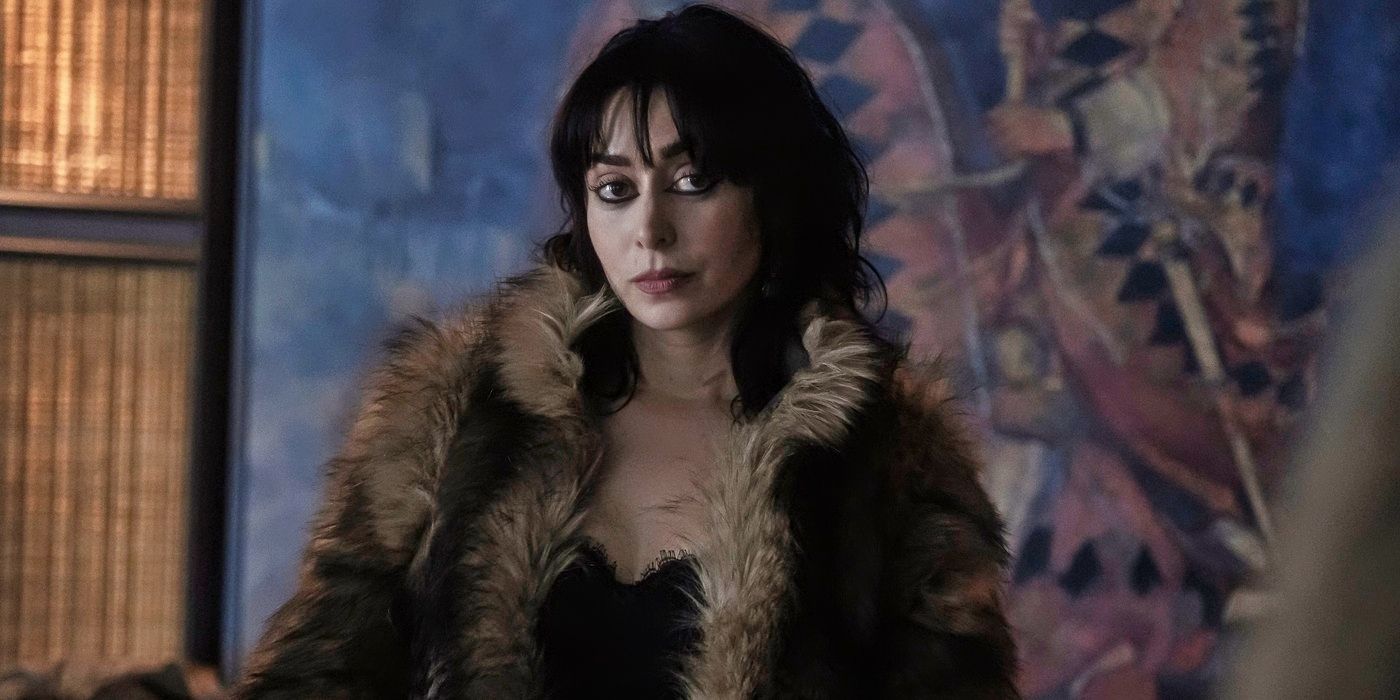
Related
Sofia’s New Identity in ‘The Penguin’ Is a Giant Nod to the Comics
Sofia’s fresh start doesn’t look good for Gotham.
When we spoke for The Batman , you told me how you went to Starbucks in the makeup when you were first doing a test. When you were filming The Penguin , did you leave set as Oz or were you more careful this time?
FARRELL: No. Not that I assumed that every single person on the street would recognize him having seen the film, but he was out there. He wasn’t an unknown entity. He had been somewhere close to the center of a film that had done $800 million globally, and I had no need. That level of intrigue or curiosity, or should I say uncertainty, I had — “What does this makeup say? How do people feel in observing the makeup?” — that was kind of gone. I knew by that stage how effective Mike [Marino]’s work was. I knew how seamless it was. I knew how life-like it was, so there was no need.
We shot all over New York, so walking from the trailer to the set was as much as I got out in the public at all. That first time we went to Starbucks, I got a few side glances for sure, but I just knew the brilliance of what Mike had done. We shot The Batman film, and I was on it for about four months, and I shot about 30 days on that, so I was well aware of how it moved, how it worked, and I just had full confidence in it.
Colin Farrell Was Most Fascinated by This Relationship in ‘The Penguin’
“It kind of had a Norman Bates bend to it a little bit, and I just thought that that was fascinating.”
One of the reasons I think The Penguin series is so good is because all of us watch a lot of stuff and it’s refreshing when you’re watching something, and you don’t see the twists and turns coming, or the revelations of certain characters. For you, what were some of the big surprises? I don’t know how much Matt or Lauren [LeFranc] told you about the overall arc before you started reading scripts, but what were the two or three things where you were like, “Holy f, I did not see that coming?”
FARRELL: Well, Lauren pitched me my journey through the eight hours. I was doing [The Banshees of Inisherin] on the west coast of Ireland, and I had a Zoom with her and Dylan [Clark] and Matt. It was about half an hour long, and she just pitched me Oz’s journey. From that standpoint, the relationship between Oz and his mother was something that I found extraordinarily refreshing. While the piece is essentially fundamentally a genre piece, and it has decades of mythology set within the world of Gotham and in relation to Oswald Cobblepot as a character, while it had that as its bedrock and as its source to draw from where it wanted to draw from and deviate and create new canon where we felt we could deviate and create new canon, I really leaned into the relationship between Oz and his mother because it’s such a formative dynamic in the way that the relationships between sons and their mothers always are, and it was kind of twisted. There was something kind of beautiful, something kind of tender, but also something kind of cruel and manipulative about his relationship with her. You know where that relationship goes and where it ends up at the end, and the kind of psychological complexity of how Oz feels about his mother by the very end and the condition that his mother is in at the very end, I mean, it kind of had a Norman Bates bend to it a little bit, and I just thought that that was fascinating. So, I was excited to get into that.
When I read the script, the end of Episode 4 was an absolute shock, what Sofia commits to to clear the path for her ascension. When I read that, I was like, “Holy fuck, that’s extraordinary.” That was probably the biggest shock I got, the end of Episode 4, reading, and I just thought, “Oh my god, that’s amazing.” And I knew Cristin was going to just eat it, you know?
I assumed, watching the first three episodes, that Sofia did these things, and when the revelation was that she was framed, I was stunned by all that.
FARRELL: Stunned, but at the same time, you kind of probably went, “Of course, it makes perfect sense.” In regards to the single-minded cruelty and nihilism of what John Turturro, in his very calm and collected way, established in the film for Carmine Falcone, it made perfect sense. Here was a man who had certain kinds of deviant proclivities and who had this very simmering violence beneath this very calm exterior, and so it just all matched and made sense perfectly in relation to how her mother died, that it wasn’t suicide and all the women that were killed from the Iceberg Lounge… That also got me when I read that. I don’t think I was suspicious. I don’t think I had seen it, but it was one of those things where as soon as you see it, it was kind of like, “Of course, it makes fucking perfect sense that she was framed.”
Why Did Oz Kill Victor?
I’m not crying, you’re crying!
When I saw in the finale, Oz sitting next to Victor, I was thinking to myself, “I think I know where this is going,” but I was hoping I was wrong. What was your reaction to Victor’s fate?
FARRELL: I mean, part of me didn’t want to do it, you know? I knew that the general sentiment was that, by the end, they kind of wanted to, in a way, kill the Oz that we met in the film. I felt that there was a sense of creative responsibility that leaned towards, “We cannot have this man as a likable character,” which is hard because, even down to what Mike Marino created, he’s interesting looking. He’s got kind of a really awkward off-tone but effective, if not goofy sense of humor. Even if people in the room don’t find him funny, he finds himself funny. It’s kind of nice to be around him even though he’s dangerous and a bit of a scumbag. But I think they wanted that in the earth by the end of the eight hours. They wanted that RIP. That’s gone.
This is somebody who was, even though Oswald in the comic books was always known as, if not the only, the most sane of villains in the Rogues Gallery. He had his faculties, he was sane, he wasn’t a victim of any kind of true psychiatric madness. I think by the end of the eight episodes, there is a degree of psychopathy that has found its way into his psychology, and thereby found its way out to the world, and the most violent and most explicit articulation of that psychopathy is committing the act that he commits at the end of Episode 8. And he commits it without compunction and with absolute understanding and with a rationalization for why he’s committing it. He says it to Vic himself, “Family is everything, but god damn it if they don’t make you weak, too,” if they don’t make you vulnerable. And I think it’s a case of that.
Did Oz Ever Truly Care About Victor?
Colin sure did.
There are loads of levels that it works on. But primarily, whatever capability Oz has to love and to care for another human being, he actually does have those feelings for Vic. He actually cares for the kid. He believes now, because he’s seen and he’s experienced how close he was to losing everything by his mother being used as a pawn against him, that he just will not put himself in that place of vulnerability again. So, it’s like he’s killing Vic, and he almost might as well be saying, “It’s not personal.” That could have been a line, you know?
But I didn’t want to do it. I resisted. Every fiber of me, of Colin, resisted it because there’s a part of you that, no matter how dark a character you’re playing and no matter how you accept swimming in those waters of the impossibility of any comeback into the affections of the audience, there’s a part of you that always wants the audience to be open to the idea that you can redeem yourself. No matter how dark your character is, you always want them to feel that maybe there is some sliver of humanity left, that if the right thing was done in a well written scene in the right moment, you could redeem yourself. I’m not sure that’s possible anymore by the end of Episode 8. [Laughs] So, knowing that I was going into that kind of degree of psychological finality and embodying the character with a kind of a depth of cruelty that is articulated in that scene, it was tough, man.
It’s not like the lines were blurred between reality and fiction. We all knew what we were doing when we went to work every day, but we had been a year with these characters. I had gotten very close to Rhenzy [Feliz]. I loved working with Rhenzy every day. I don’t want to say he was like a kid to me, but there was, not a power dynamic but a status thing just by virtue of me working for 25 years as an actor and him being a young kid, up-and-coming, and me being the Penguin and him being Vic, and all that. So, our relationship dynamic was always around kindness and support for each other during scenes. But I loved him and I loved watching what he was doing and I thought he was extraordinary in the show. And in many ways, to me, Vic’s character is the conscience of the show. He is the purest innocence that gets lost the most in this show over the eight hours and pays the ultimate price. But I didn’t want to do it.
That night on the set, it was really funky because the whole crew was invested in the story by that stage. We all knew what the scene was, and there was about as little conversation on the set between crew members, between us as cast, between me and the director, Jennifer [Getzinger]. There was very little conversation on the set that night. We knew where we were. There was a slab that we were sitting on by the water. We knew our lines as actors are supposed to, and we just went, and we did the takes, and we did as many angles as we had to do, and I fucking hated it. I hated that scene. I really did. I was fucking so pissed off. It felt in performing it as — guess what? — you would like it to feel in viewing it. It felt gross, it felt cruel, it felt absolutely insane, and it felt like Oz was reaching a point of no return.
Colin Farrell May Have Hated Vic’s Death More Than You
“I had to have a shower with a wire brush at the end of that night.”
Was it near the end of the entire shoot?
FARRELL: It was one of the last days. As I said, Steve, we were on this for a year. We had the two strikes in the middle that stood us down for six months, but I think we started shooting in something like March of 2023, and we finished at the end of February in 2024. Yeah, it was the last week, so we were all tired. We loved what we were doing. We were all getting nervous because it was coming to the end, and then the sweetest character, by far, in the whole fucking show, the sweetest, kindest, most vulnerable spirit in the whole show was going to be having a conversation with somebody who he deemed to be his replacement family, his father figure — Vic had lost, obviously, his whole family — and that man was going to put his fingers around his throat and squeeze the life out of him. Honest to God, fiction though it is, sometimes what you’re doing is so moving, sometimes as an actor, what you’re doing is so tender, sometimes it’s so cruel that it stays with you. You bring it home at night, and that was a sticky scene. I had to have a shower with a wire brush at the end of that night.
I feel like Victor would have been loyal to Oz, but I also understand Oz’s apprehension because Victor is seeing the real Oz. We’ve already started to see Victor changing from where he started, so you never know what could have happened. Because the truth is, Victor could have been the one who… I see all sides of this.
FARRELL: Totally. There are some people in the world — I’ve met a couple of them in my time — who rise to such an ascended place within a socially constructed dynamic, and they get to the top of the pile, whether it’s in music, whether it’s in acting, directing, whatever it may be, and bit by bit, they begin to cut people out of their lives who knew them when they were more vulnerable, who knew them when they were more desperate, who knew them when they were more, what feels to them, from their new position of height, in a place of weakness. And so, Victor has seen Oz at his most vulnerable. He says that in the scene, as well, “You’ve seen me at my worst. You’ve been there every step of the way, kid. You’ve seen me with my Ma. You’ve seen all this.” In the scene before it, Oz has a total breakdown and Vic sees that, and Oz was very aware of that, and he doesn’t want the kid around. He doesn’t want the kid to know how vulnerable he is.
If he’s going to go forth, and if he’s going to continue his rise, and if he’s going to continue to consolidate power within the criminal underworld of Gotham, he’s got to be seen as impenetrable. He’s got to be thought of as completely invulnerable. Of course, Eve says in the scene to him that Johnny Vitti, the underboss, nobody can get to him, she says he’s untouchable, and I say, “Nobody’s untouchable,” and then she says, “Well, then neither are you.” Well, Oz needs to live in a world where people think he is untouchable, he is invulnerable, so we can’t have everyone around. But he loves the kid, and he says that as he’s choking him out. He says, “You’re a good kid. You got a great heart,” and then he kills him.
But I think — and I don’t know what the second film is going to be or the third, or if it was to go a second season or whatever — there is an opportunity to explore, yet again, a different side of Oz, which is a little less humorous, a little less messy, more on point. Because even in the show, he’s quite reactionary. Things are happening all around him and he’s constantly on the back foot. He’s constantly in survival mode. And look, there’s a certain aspect to living in a world of criminality like that where you’ve got to be looking over your shoulder all the time. Any criminal, whatever level of criminality they exist at, from a don to a foot soldier, you’re always looking over your shoulder. You can’t have a moment’s belief that you are completely safe. People will eat in restaurants, and they’ll eat in the back of the restaurant with their back to the wall for a particular reason, so they can see who’s coming in the door, even if they have security at the door. But I think for Oz, there is that desire to be seen as invulnerable and to be seen as untouchable, and it will be interesting to see how the story goes forward.
“Where Is Batman When All This Was Happening?”
Colin Farrell was just as thrilled to see that bat symbol.
What was your take when you saw the bat symbol going off as the final shot?
FARRELL: I loved it, man. I got giddy. Look, I’m a nerd when it comes to all this. I get really giddy. So, it’s very hard for me to be objective in the face of any films or television I’ve done. As soon as I’m in it, there’s some kind of self-criticism and discomfort and fear of my own judgment or judgment of others, or whatever, that kicks in that renders me unable to have an objective perspective on what I’m a part of. There really is. It’s very sincere, and it’s a little bit of a pain in the arse. But at the same time, I don’t need to watch the stuff I’ve done or enjoy the stuff I’ve done. For me, doing the job, working with a crew, working with a cast, bringing stories to life every day on the set, that’s where the juice is, of course. That’s what I love to do. Watching it doesn’t hold any water for me.
But I will say, I didn’t know that was going to happen. There were a few different versions of that, and it played out a few different ways and we shot it a few different ways. I heard they were doing something new with the cut, and I watched it, and I saw the camera come outside the room and you see me and Eve still dancing, and then boom, in the sky. I get people’s concerns of, “Where is Batman when all this shit is happening?” But this shit hasn’t reached the news yet. It really hasn’t reached the news yet. Yeah, he’s got his finger on the pulse, he knows what’s happening, he has certain abilities to survey certain parts of the city, and he certainly has the technology to listen in on phone calls — my kid has a drone that he can fly to Universal Studios and see who’s on what ride. There are ways in which he could be aware of what’s happening.
What’s happening is all very under the cloak of the criminal underworld. The murders of the Sullivan guys, who are strung up and have their little finger cut off, that makes the news. There are certain things — obviously, the killing of Alberto Falcone — that make the news, but this story takes place over four to six weeks. And Batman himself, the way I remember it at the end of the film, he’s having a moment of existential shift in regards to what he feels his purpose is and how he’s going to go forth, as a dispirited sense of right in a city that needs an extraordinary amount of help to fix the moral wrongs of what is constantly at play, whether it’s in the world of politics or the world of criminality.
So, I felt at the end of what happened, — and we get a closer look at what happened through Victor’s experience — what the Riddler did was so horrific and killed so many people that I think Bruce Wayne/Batman has had a moment where he needs to step back and figure out his own implications in that because the Riddler implicated him directly in the Riddler’s mission. So, I’d say Bruce Wayne is having an existential crisis by the end of the first film, and I can’t wait to see how he inhabits the Bat in the second film. So for me, I understand why people are going, “Where’s Batman when all this is happening?” But none of it is huge news. It’s all happening beneath the cloak of night.
So, when I saw that, I loved that it was addressed. I would have hated the show to finish and end up with the final credits and Batman not be addressed at all. And it’s right down to the wire, but when that signal came up, I mean, it’s so iconic, and it’s so exciting for me and the inner kid that lives inside this 48-year-old body. I just thought, “Oh, shit, there’s a reckoning coming. There’s another storm coming.”
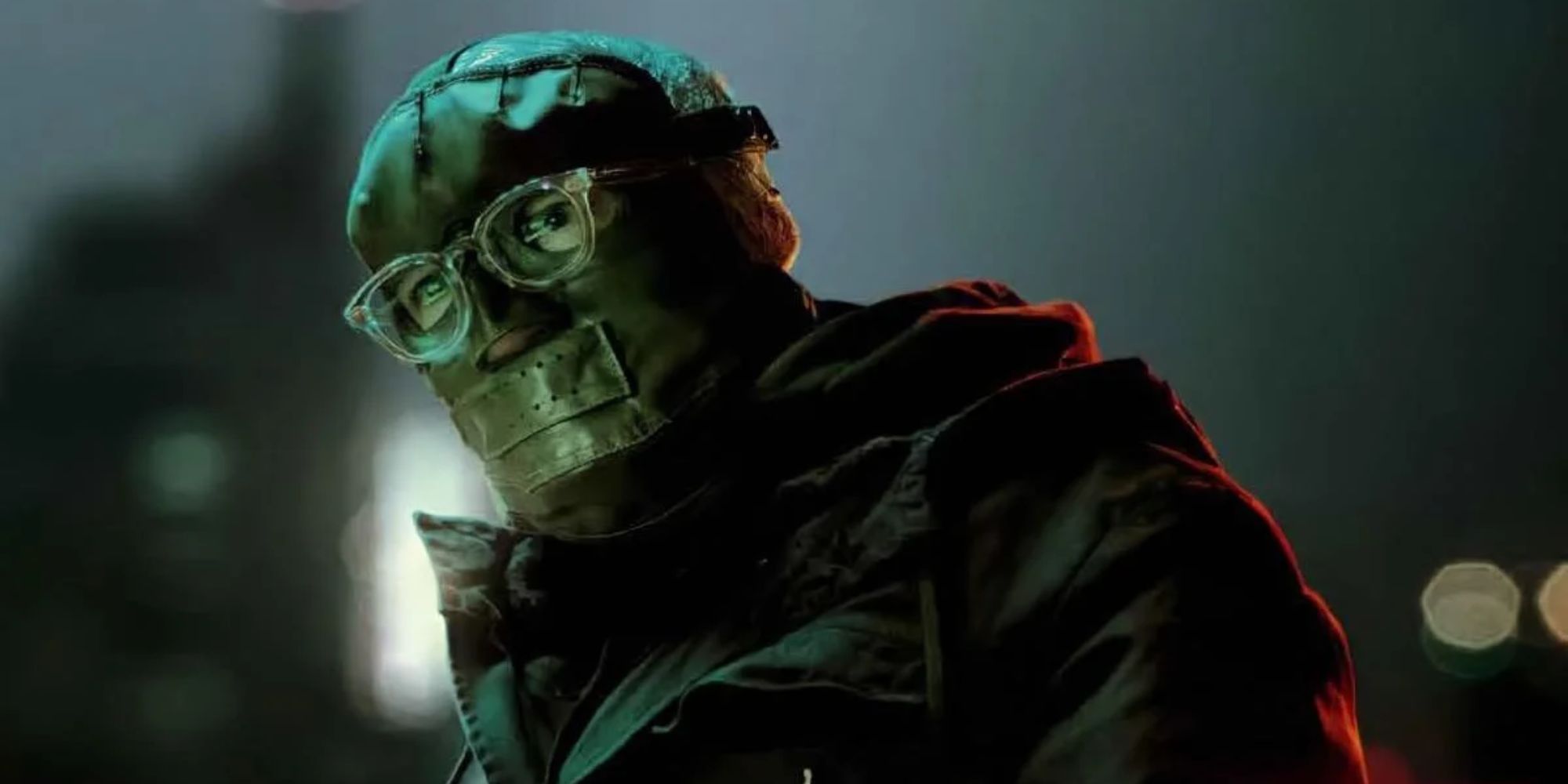
Related
‘The Penguin’s Backstory for Victor Turns Riddler Into an Even Worse Villain
Perspective is everything.
I actually never wondered where Batman was during the series because there are a million things he could be doing, and that’s what the next movie is for. I’m sure there’ll be a line that says, “I was blank,” or whatever. Doesn’t phase me at all.
FARRELL: And the idea was that the show could stand on its own, truly. We really wanted to be able to just make something that could hold the audience’s attention, that could treat all the characters with enough detail and enough passion and enough concern and consideration, and be designed well enough that we wouldn’t be too concerned about where he was, all the while knowing that he’s going to turn up sooner or later.
Throughout the entire series, I never was thinking, “Where’s Batman?” At the end, when the symbol pops up, though, I loved it. It was great. It was perfect.
What’s in Selina Kyle’s Letter to Sofia?
“They would be a force to be reckoned with.”
Do you know what is in Selina Kyle’s letter to her half-sister, Sofia?
FARRELL: I do not. That’d be a direct question for Cristin. I have no idea. I imagine it’s support. I imagine that the lines of familiarity of experience that both of them have shared is articulated in some way. They are both women who have been victims of the abusive ways with which the patriarchy has moved through our world. They are women whose pain and whose loss have been treated with a certain amount of apathy, disinterest, and disregard by the power central of the male experience within this society of Gotham. They are tied together by a blood bond but also by the horrendous and cruel murder of their mothers. So, they would be a force to be reckoned with. I’m very keen to find out what the implications of Selina reaching out to Sofia are.
Matt told me, “The story plays out over the next weeks after The Batman that take you towards the end of the year. We don’t play Christmas or New Year’s, but we’re getting there.” You mentioned how the series takes place over four to six weeks. I think my only complaint with the series, if I’m being honest, is I think it takes place more than four to six weeks. I just think about it because I’m a real nerd, but I think about the growth of the spores…
FARRELL: The lab.
Yeah, and so for me, I think it’s more realistic if this show takes place over three or four months rather than four to six weeks.
FARRELL: No, I get that, as well. You saw the time jump between Oz showing Victor the underground tunnel system that he used to play in with his brothers as a child at the end of [Episode] 4, and then by the time we come back at the start of [Episode] 5, that is an up-and-running industry.
22:03
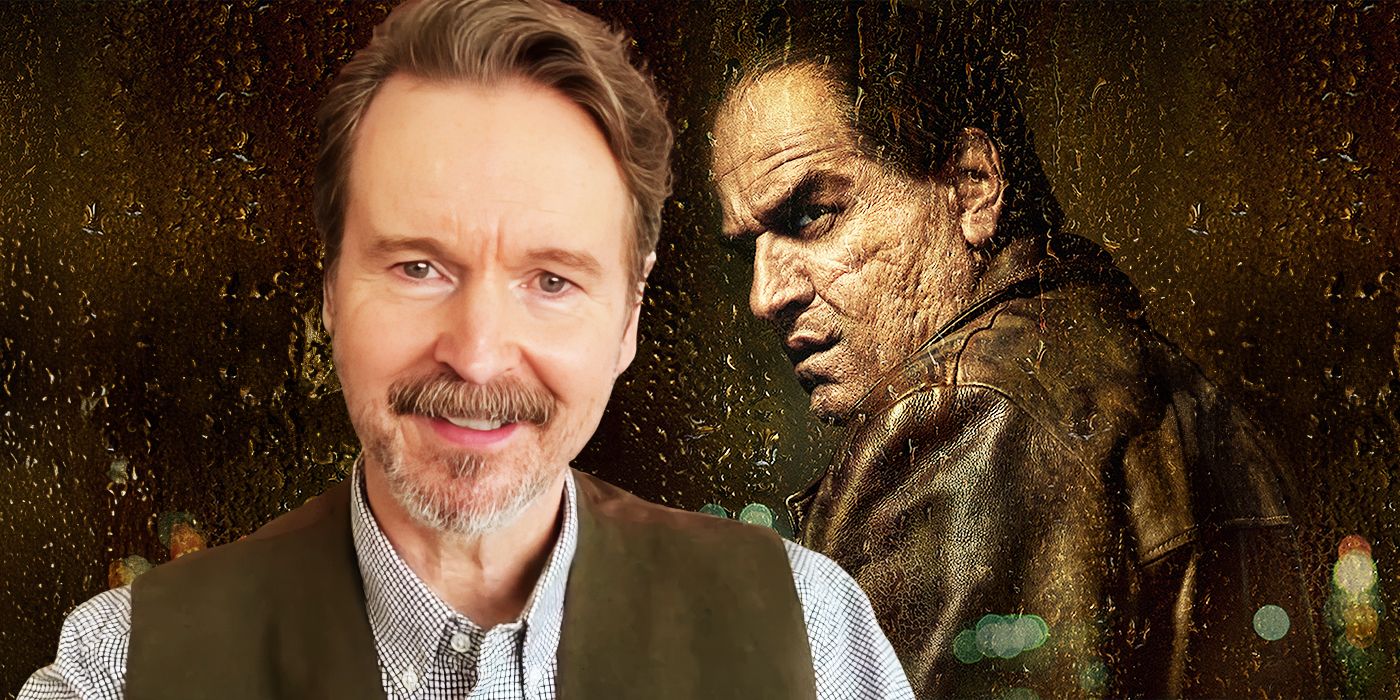
Related
Matt Reeves Lays Out the Plans for His “Batman Epic Crime Saga” [Exclusive]
Ahead of ‘The Penguin,’ Reeves discusses the plan for continuing his saga, from ‘Batman: Caped Crusader’ to the next two ‘The Batman’ sequels.
Exactly.
FARRELL: I mean, the lab is in full flow. He’s got 30 to 60 employees running around doing his bidding. He’s beginning to have enough product to saturate the streets. So, I think I probably think of it in relation to the moments that were played rather than the gaps that could exist between episodes. And if you put in the gaps that could exist, particularly between the end of [Episode] 4 and the start of [Episode] 5, I wouldn’t dispute two and a half months, three months.
Honest to god, that is my only nitpick of the series. Next time I talk to Matt, I’m gonna be like, “This can’t be four weeks.
FARRELL: Yeah, yeah, yeah. “What kind of hydroponics are you using over there?”
Yeah, because there are two buckets of the spores, and then all of a sudden, it’s like a whole thing. But again, this is me.
FARRELL: No, I hear you, man. I wouldn’t dispute that.
Colin Farrell Fought for the Iconic Penguin Look
What was it like for you in the last episode where we finally see Oz in an outfit that a lot of people know — the top hat and all that?
FARRELL: Oh man, I wanted that badly. The costume wasn’t picked for the last episode, and I requested it. We allude to the scene with the congressman where he said, “What do you want in return,” when we’re in the courthouse, and I say, “Maybe it would be nice to be welcome in a place like this for a change.” A lot of what drives Oz is acceptance, and a lot of what drives him is his desire to be accepted in worlds that have been declared, by how they run themselves and by the people that inhabit these worlds, as worlds that he was never going to be included in. And one of those worlds is the hierarchy and the hoi polloi of the political realm and the power within the political realm because he understands that all politics are corrupt essentially, and the damage that he could do then in being part of a political infrastructure of Gotham interests him.
And so, I thought that’s another time jump between the death of Vic and going home to his new penthouse apartment that night at the end of Episode 8. I thought it would be nice if, in that time jump, he had been invited to maybe a gala or two, you know what I mean? It’d be awkward. He’d be slurping out of the fucking teacup, there’d be stains on the table, he wouldn’t really fit in, but he’d fucking love being there. And I said, “Look, let’s go old-school. Let’s get him in a tuxedo, let’s get him tails,” and I really wanted the top hat.
I put the top hat on in the trailer, and I was looking at it, and I was trying to see. Maybe it wasn’t exactly the right top hat, and we’re talking an eighth of an inch here and a quarter of an inch there, but it just was too much of a leap even for me. I was trying to figure out ways. Like, I wanted the monocle, I was fighting for cigars in the film, but they wouldn’t let me smoke in the movie. Thank god, they let me have cigars in a few scenes in this show. I had a thought when I had that crash in The Batman that we could have had blood on one eye, and then in the last scene in The Batman, he could have had an eye patch over the eye, that he had had some stitches or surgery. Then in the show, maybe he could have had a monocle — didn’t go for it, but at least I got to hold the top hat in my hands.
Again, we see the bat signal at the top. I wanted to try to angle back towards the more visually iconic aspect of the character, but always do it, honest to God, organically, and do it in a way that was in keeping with the tone that Matt Reeves set with the first film. Matt is so adamant, and he’s right, and this is his vision. He’s so adamant that everything is grounded, which is not to say that it excludes the fantastic, as well, but it has to be within the realms of believability. I mean, the bleeding tooth spores, as you know, that mushroom exists — it doesn’t have any hallucinogenic properties like we’re saying in the show, but that fucking mushroom exists. It lives in forests, it bleeds, it has that red syrup that comes out of it. Everything is very close to 100% possible that we’ve tried to achieve in the show, so I wanted to find my way back to the more recognizably iconic aspects but do so in a way that was believable. And right at the end, I thought, “Good. That’s a place for a tuxedo. I can have the top hat. Let me just hang the top hat up, and that will be enough for me.”
What’s Up With Oz and His Mom in the Penthouse?
Is she trapped? Is she proud of her son? Is Oz punishing her?
At the end of the last episode, we see Oz talking with his mom in the penthouse, and that tear runs down her eye, and it leads you to believe that she’s trapped in the body…
FARRELL: No, she’s just proud, man! She’s proud.
It leads you to believe that it’s like locked-in syndrome, which is where she’s totally aware of what’s going on but cannot do anything with her body but have a tear come out. How do you view it?
FARRELL: Look, Oz’s ability to deny what has been shown and evidenced very strongly is astonishing. I mean, it’s a form of madness in itself. The last time he saw his mom before he walked into the hotel room, in that scene where he’s told that she is in a catatonic state and she’s had an aggressive stroke, and she’s kind of lost to him — certainly, the mother that he knew all his life is lost to him — the moment before that she sticks a bottle in his belly and tells him that she’s been living with the devil and that he’s the devil. And yet, he walks into that hospital room, “Ma, how are you doing? There she is!” As if they’d just came from a birthday party. So, his ability to be delusional of his own essential needs and his own essential design is really quite shocking. So for him, what he says in that scene with her, whether in the pit of his soul he knows or not, in a surface place that Oz likes to inhabit where he likes things to be his way, he believes that she is happy in that moment, that that is a tear of joy. There’s no doubt he believes that is a tear of joy.
Having said that, his feelings for her at that point are not the same. I think you can tell with the coldness of the interaction between the two of them. The interaction is very one-way, but the coldness of how he even speaks to her and his lack of recognition of the condition that she’s in, that the denial is one that’s not really built on the warmth or the tenderness of love, but on the residue of a need that he’s lived with all his life, and that residue of the need says, “I will never think my mother doesn’t love me. She was having a bad day when she stuck that bottle in me. She was under a lot of pressure. She nearly lost her finger. She stuck a bottle in my belly. It was a bad day. She didn’t get a good night’s sleep the night before.” It’s that kind of thing. He’ll make up fucking whatever. He’s already lying when he goes, and he’s stitching up his belly, and Vic says, “What happened?” And he says, “Sofia, she stuck me with a bottle.” He’s already beginning to bury the truth.
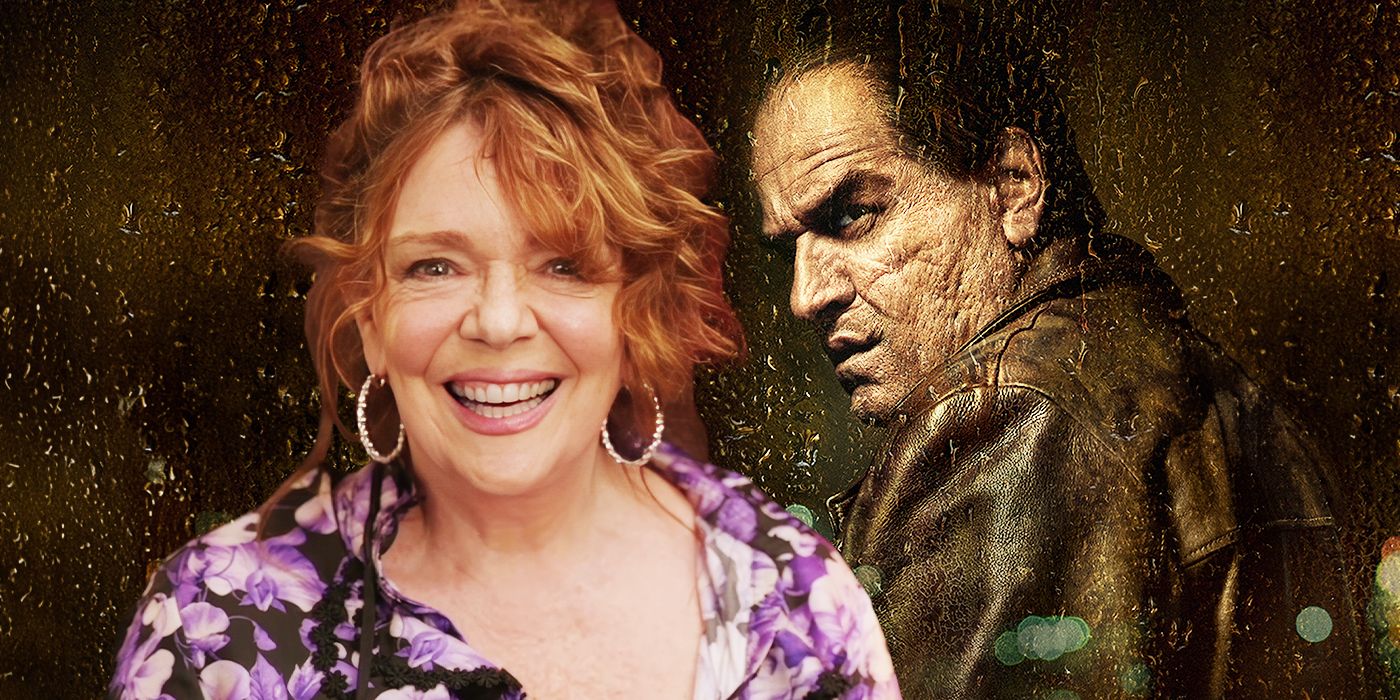
Related
Deirdre O’Connell’s ‘The Penguin’ Character Was Inspired by Mob Movies and Her Showgirl Grandmother
Deirdre O’Connell also talks about the show’s very complicated mother-son dynamic, and whether Francis really loves Oz.
Oz is someone who’s really good at burying the truth to a certain place of depth where it no longer exists and is consumed by a design that he has created that suits him, and that design becomes his reality. That’s part of his gift, but also part of his madness. So, In the end, he made a vow to her that he would not let her end up in the state. He made a promise. He looked her in the eye, he saw how upset, he saw how scared she was in Episode 6, and he made a vow to her. That was a very uncomfortable vow that he made, and he didn’t want to make, but he looked her in the eye, and he said, “Okay, I love you enough to do what you asked me to.” He said, “You’re not a fucking dog,” but by the end, he said, “Okay, I’ll do it,” and he’s too selfish. He couldn’t give her her last dying wish. He’s just too selfish — and there might be a little bit of punishment in there, as well, keeping her life. There might be a little bit of twisted punishment in there, as well.
Did Oz Intentionally Kill His Brothers?
We learned that Oz was responsible for killing his brothers, but you can argue that Oz didn’t know that what he put them in would flood or that they couldn’t get out. Do you think he purposely killed them?
FARRELL: No! No, I don’t. But he certainly never owned up to his part in it, and his desire to have his mother’s attention and have it solely directed towards him, that deep burning desire that he had, certainly resulted in him doing something that he shouldn’t have done. But if you look, that manhole on the wall, that’s the same manhole that Oz jumps into at the end of Episode 7 to save his own life when the bomb is going to go off. In that manhole, there’s a staircase — the staircase goes down to a sewage system. Did he think that the sewage system was going to fill with 25 feet of water and that his brothers were going to die? Absolutely not. You’d call it involuntary manslaughter, I guess, is what you’d call it. But his brothers died as a result of his actions, and he’s never talking about them, and he’s never admitted it. He said he didn’t see them. So, his need and his desire to get them out of the picture, to whatever extent, is enough of a guilt that he never talks about it, that he owns no responsibility for it at all.
I’m glad you brought up that argument because it’s not like he poisoned them. It’s not like he shot them. He did something that resulted in their deaths, but I don’t necessarily believe that he thought that they were going to die and never come home that day.
I don’t think he purposely tried to kill them. Do you think if the brothers had survived, that at some point, Oz might have gotten rid of them on purpose?
FARRELL: I think a confluence of things had to happen. His desire to get them out of the picture long enough that he could be with his mother for that one night and have that one movie and have that dinner with her, that mixed up with the level of the flood that was coming and how the waterways were subsumed beneath water, all that kind of converged to, more than anything, that event created the monster that we meet in the show. If that didn’t happen, if they had survived, I’m not sure that he would have someday decided to kill them. I don’t think so. I think their death was a result of his deep need to have his mother’s attention and his mother’s love solely directed towards him. But the fact that they died then created a greater darkness in Oz than would have never been there if they had survived. So, I don’t know if he would have made the leap towards ever killing them. I don’t think so. Possible, but I don’t think so.
What Just Happened With Oz and Eve? “It’s Twisted, But I Dug It”
“We’re going full Bates Motel here.”
What do you make of the scene where Oz and Eve are dancing, and she’s essentially pretending to be his mom? It was only at that moment when I was watching that scene that I realized there’s some similarity between both actors who play — and maybe I’m wrong about this — Eve and your mom?
FARRELL: I remember saying to Lauren, “You need to show Carmen [Ejogo] the scene where Oz and Mom are dancing, and just a couple of moments where Mom is in that dress,” because I think the biggest similarity is when I come down the stairs, and you see Carmen and she’s by the fireplace, the way she has her leg cocked, the way she has her hip out, it’s very much the way Francis was standing in a couple of scenes earlier on. She’s obviously wearing Francis’s dress from that night when we went to Monroe’s, and she has her hair up in a particular way. So, yeah, it’s twisted, man. When I read that, I was like, “Oh my god, we’re going full Bates Motel here.” But again, it speaks to what has become a pathological inability to accept the world that he has played such a heavy hand in creating. Because if he’s going to be honest about what he’s created, there’s a lot of fucking messy, funky, distorted, dark stuff around him. But as far as he’s concerned, he’s just doing what he needs to do to live the life of a good son. And look, his mother can’t talk anymore, so he needs a surrogate.
And I remember thinking, “What would that scene look like? How would I say that to Eve?” That’s a weird one to take to my quote-unquote girlfriend, even though it’s a relationship very much of convenience. I mean, it would be kept out of the sexual realm — it wasn’t about that. It was about the intimacy and the tenderness and the pride that Oz always so deeply needed to feel his mother had for him, and pride in him, that he never really got from her. The one time when he finally can say to her, can go to her bedside and say, “It’s done. Everything you said that I was capable of, everything you said that I should aspire to, Rex Calabrese, all the boys you worked with who you did the books for, it’s done. I am now them. I am now the boss. I took it from everyone else.” And he gets nothing back. His mother’s already gone. That’s just too horrific for him, so he needs a surrogate. He would say to Eve, “Look, I’m grieving. I’m finding it hard to deal with the fact that my mother’s alive, but she’s not here. She’s gone, but she’s fully present at the same time, physically, but she’s nowhere there. She doesn’t recognize me. I don’t recognize the woman she’s become. Do me a favor. We used to dance together and talk at the end of the night. Would you put on her dress and just let me pretend?” So, I think it would be kind of trying to just help me through my grieving process.
But it was twisted. It was twisted, but I dug it. He needs it from his mom so much. And again, his imagination is so potent that he just cast her as that figure, that most prominent and most powerful figurehead in his life, which has always been his mother. She’s got to stay alive. He’s got to hear that he did well from her. He’s got to hear that she’s proud. Look, by the end, he’s bananas, as they say in the film. Good cop, batshit cop. At the end, he’s batshit.
Why Didn’t Eve Meet the Same Fate as Victor?
Both characters saw Oz’s vulnerabilities, but there’s something missing with Eve…
It’s interesting, though, because he gets rid of Victor because Victor has seen too close to the inside, and he doesn’t want someone he cares about…
FARRELL: I don’t think he cares so much about Eve.
But he’s willing to put up with Carmen’s character, Eve, who has seen the inside, and that person isn’t eliminated. So, what do you think it is about this character? Is it because he thinks of her as a mom figure, that, “I can’t get rid of her?”
FARRELL: No, I think it’s quite simple. I think Oz is probably lonelier than he even realizes. I think part of what kept Victor around initially was not only what people have commented on, that was a factor — he saw this kid’s struggle, he saw what could be recognized socially as a disability of sorts, and so there’s a sense of kinship there — but it’s also a misery loves company. He’s having the worst night of his life. He doesn’t want to be on his own. He wants a bit of companionship. He sees how the kid looks up to him. There is a load of different reasons why he keeps Vic around, and most of them are pragmatic — he needs help with the body, and he wants somebody else to be complicit in the crime and yada yada.
With Eve, some of it is loneliness, and some of it is probably sexual need. I don’t think that he has anything like the feelings of tenderness or true affection for Eve that he had for Vic. So, say if Eve was kidnapped, I don’t think he’d lose too much sleep over it. I honestly don’t. I don’t think he’d lose too much sleep over it. Even though she’s inhabiting the role of his mother, as Francis, by the end of the show, it’s kind of a superficial inhabiting to serve a purpose for his ego and his central nervous system, but there’s not that much real depth to it. He doesn’t have any real affection. He’s engaged in the roleplay, it’s kind of working a little bit. It’s a short scene. I don’t know how much it’s working a lot. I don’t know if they would continue with that roleplaying. I don’t know if it’s something that would be sustained over time. I don’t know that they’re going to go out to a restaurant and have a meal together and her pretend, and him talk to her like she’s Ma. I don’t know.
But with Vic, he had a tenderness. He cared. He had an affection for the kid. The kid was almost like his own kid, and he was raising him a little bit. But with Eve, I don’t think there’s that degree and that depth of affection and tenderness. I think if she was taken, whether he wants to admit it or not, he knows it’s a transactional relationship. The relationship with Vic, even though he was manipulating Vic, as well, and he was using Vic to his own ends, it wasn’t, by his own kind of definition, transactional. There was a sense of kinship there. There was a sense of brotherhood. When he said to Vic in the sewer, “They’ll tell stories about us one day, kid,” he meant it. At that stage, he actually saw that he could rise and Vic could come with him. It’s only when the vulnerability and the shock of his mother being taken from him and the place of vulnerability and danger that puts him in that he realizes there’s no more love, there’s no more affection, there’s no one else I’m going to have in my life that can lead me to such vulnerability as my mother has led me to or as this kid could potentially lead me to.
Colin Farrell “Certainly Wouldn’t Run Towards” ‘The Penguin’ Season 2
So, Matt hasn’t told you anything about The Batman 2 ?
FARRELL: Brother, I know nothing. I know about as much as you — maybe less because you talk to Matt more than I do.
Has he asked you to save any dates next year in terms of filming?
FARRELL: No, no, but I’d say Dylan will probably let me know very soon. I could call up Dylan today and ask him, I suppose, what we’re looking at, when we’re going to start shooting and all that thing, but I’ve kind of had enough of it all for now. I need to step away and just be at home and chill and watch movies and go on hikes.
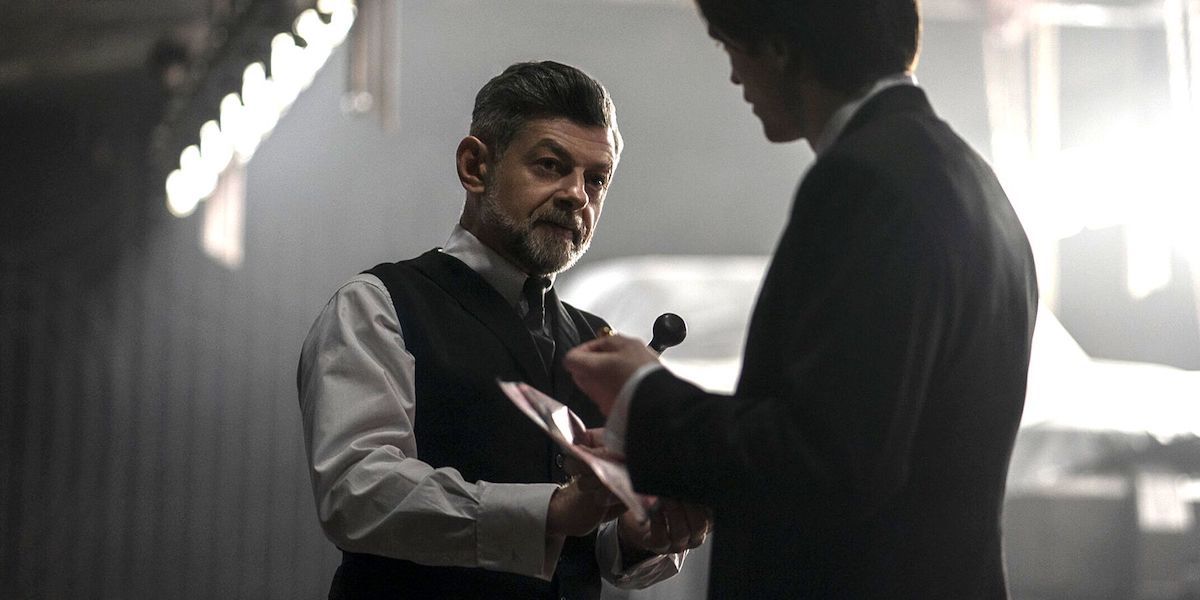
Related
‘The Batman 2′ Gets a Promising Update From Andy Serkis
“I really look forward to playing Alfred once more.”
I totally get it. Originally, this was thought of as a limited series, eight episodes, and that’s it. When I spoke to Matt, he hinted that there could be more, but he wasn’t saying The Penguin . I think he was saying that they’re developing stuff for HBO/Max. My question for you is if they decided, “We want to do another season of Penguin ,” is it something that you would jump into, or is it something like, “I need to hear the story,” or are you happy with the one season?
FARRELL: You’re covering on all the eventualities there. Where do I sit with it from now? Honest to god, I’m so shocked and so grateful that the show has caught the imagination of the viewing public the way it has. So many people put so much work into this, man — an extraordinary crew, tricky shooting conditions, long days, Lauren doing the job she did, Matt shepherding it as he did. That we got eight hours of television, and up until the fourth episode, it’s been working a treat, it’s such a pleasant surprise. It was always a limited edition, so I’m okay with never doing it again outside of the films. If I’m in the second film and the third film, I’m really happy with that. I would hate to go back in and, in some kind of way, undo the goodwill that this limited season has created with people. I don’t feel any burning desire to unearth this aspect of Oz and that aspect of Oz.
Having said that, if they came up with a pitch for eight hours that could work bilateral with Matt’s world because everything’s got to fit into Matt’s world — Matt is creating a trilogy of films that I believe by the end are going to be just astonishing because he’s just such an extraordinary storyteller. So, it’s got to fit in with Matt’s timeline. If they came up with a great story, I certainly wouldn’t run towards it, but I’d walk towards it and have a good look. I’d be open to it.
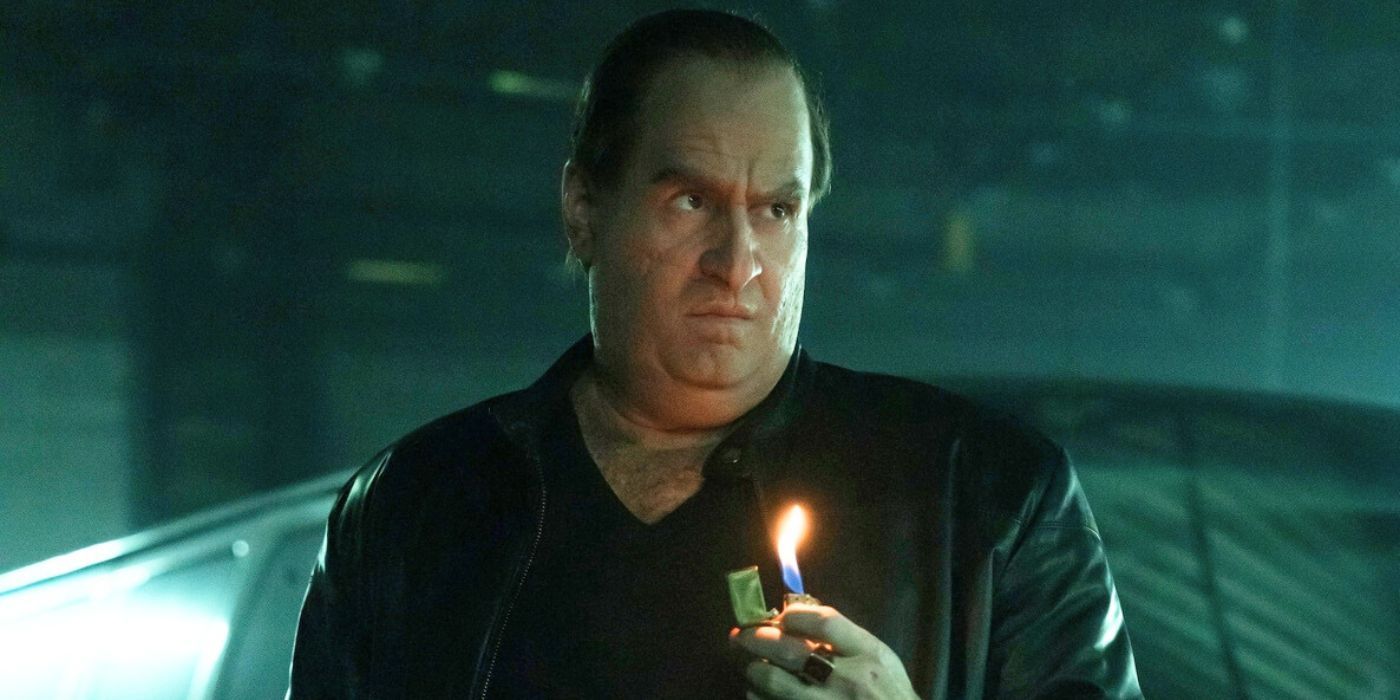
Related
‘The Penguin’ Producer Wants to Continue Expanding the World of ‘The Batman’
Producer Dylan Clark also talks about the evolution of the makeup and prosthetics that turn Colin Farrell into Oz Cobb.
I love your collaborations with Martin McDonagh. Have you guys been talking?
FARRELL: No, I don’t see Martin. I don’t talk to him much. When he comes to town, he’ll throw out a text or whatever, we might get together for a bite, but I don’t know what he’s doing now. He was working on something that I wasn’t going to be involved in. He’s a stickler, man. Whatever a high bar we, as fans of film, might hold for Martin, he holds a way higher bar himself. He’s tough on himself. The Banshees and Three Billboards [Outside Ebbing, Missouri] and In Bruges, he’s made some extraordinary films. He’s kind of four for four, and I don’t know what he’s up to next, but I know he was working on something that I wasn’t going to be in. But Martin is like my brother. I love working with him.
‘A Big Bold Beautiful Journey’ Was Like an Antidote After ‘The Penguin’
I am very curious about A Big Bold Beautiful Journey , mostly because of Kogonada and your work on After Yang was just so good. What can you tease about this project?
FARRELL: It’s kind of a love story, but it’s not a very typical one. It’s definitely magical realism. It’s grounded in a world that we recognize, but it also is removed enough into the world of fantastical that it goes into these kinds of whimsical places. It’s a story about being revisited by, but also having the opportunity to revisit certain moments in your past that were very formative. It’s about two people at a stage in their lives — Margot [Robbie]’s character and my character — that find themselves at an emotional crossroads where they’re not living terrible lives, but life hasn’t really worked out for them. They’re both terrible at relationships. Neither have been able to find a moment’s joy in relationships or companionship. And they begin to find that through each other, as a result of this one night where they go on this fantastical journey and get to see from an objective perspective these moments in their lives that, as I said, were very formative, and get to take accountability for times where they hurt people.
It was beautiful in script form. Seth Reiss wrote it, who wrote The Menu. Kogonada did a bit of a pass, and then K. did his thing with Benjamin Loeb, who’s his cinematographer. They just photographed the most beautiful, beautiful images. I don’t know what it is, man. It was a very strange film, but for me, it was a good antidote to the darkness of The Penguin because the film is about healing and it’s about life and it’s about finding love, and it’s about finding self-acceptance, and so that was lovely because I only had three weeks off between the end of Penguin and the start of Big Bold Beautiful Journey. So, it was a lovely antidote for me because it was tender.
Colin Farrell Calls Edward Berger’s ‘The Ballad of a Small Player’ “F*cking Insane”
I am a huge fan of Edward Berger. What can you tease about The Ballad of a Small Player and getting to film in Macau?
FARRELL: Well, as tender as Big Bold Beautiful Journey was, The Ballad of a Small Player was fucking insane. I don’t know what that is either, man. That’s another strange one. Macau was extraordinary to shoot in. It’s a fascinating place. It’s incredibly modern on the strip. It’s, as you’ve heard, the Vegas of the East, and they have the Wynn Hotel and they have the Londoner and the Parisian and the Eiffel Tower and the whole fucking thing. Then, across the water, is Old Town Macau, which is heavily architecturally influenced by the Portuguese arrival there in the 1600s, I think, and it’s a fascinating place. I love shooting there.
I loved working with Ed. The story is incredibly operatic. Again, it’s a tale of addiction and a tale of regret and shame. Hopefully, by the end of it, a certain amount of redemption, a kind of redemption that’s not offered up for Oz in The Penguin, but it is very much a path that we were kind of angling towards while doing the Ballad. But I haven’t seen a frame of it. We just finished that about four weeks ago.
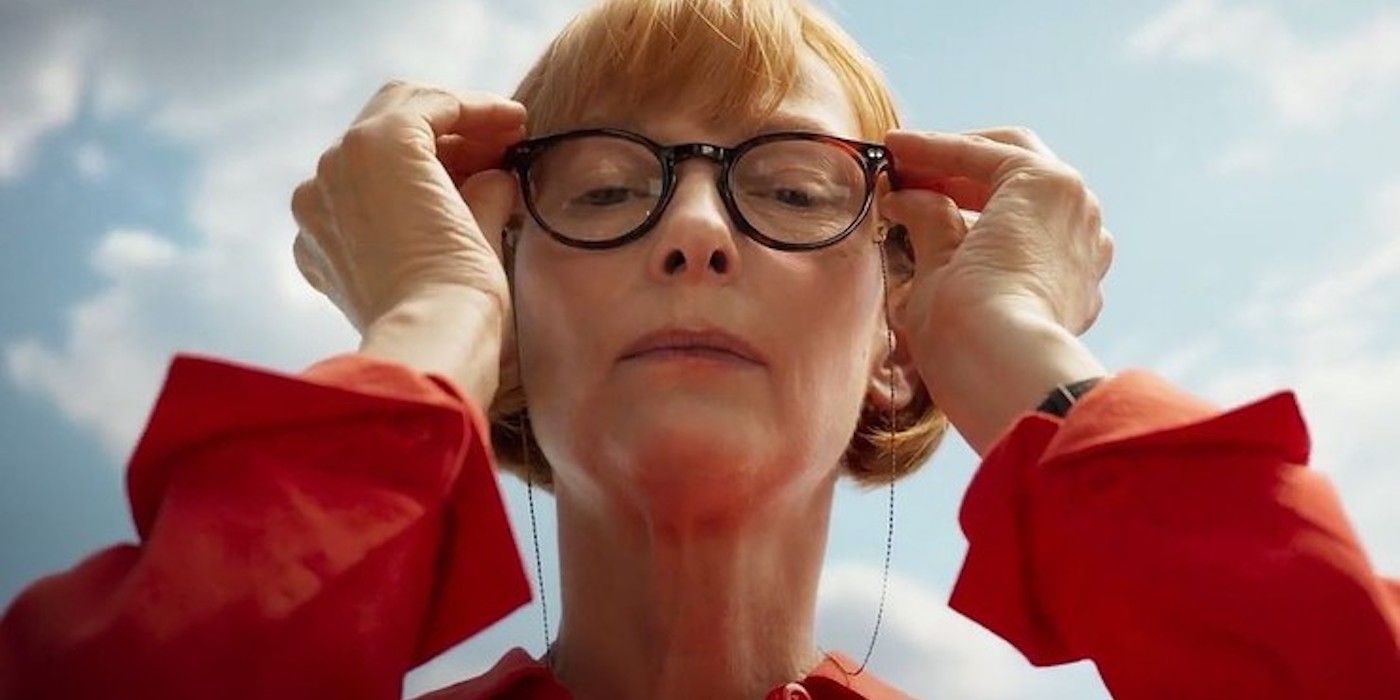
Related
Tilda Swinton Joins Colin Farrell In Netflix’s ‘The Ballad of a Small Player’
‘All Quiet on the Western Front’s Edward Berger will direct the film as it heads into production this summer.
I went to Macau a few years ago, and I experienced the underground passages between the hotels. The problem with Macau, and I don’t know how it was for you, is I experienced extreme jet lag and had a really tough time. What was it like for you actually filming? Did you stay in those hotels?
FARRELL: I stayed in the Wynn. I lived a very kind of monastic existence, as I tend to when I go to work. It’s usually just the set and then home to the hotel room and hit the script, maybe throw a movie on, maybe get a sauna in. Unless I’m shooting at home and then, thank god I have the kids, I come home to the kids, and then I have to be very clear that there’s a dividing line between going to work and coming home and being Dad in the house and stuff, which is cool and preferable. But when I’m away, I’m afforded the luxury of having one purpose to focus all my energy on.
So, with that in mind, I literally did fuck-all, man. The days were long. They were 14, 15-hour days. I’d go home to the hotel, I’d have a sauna, I’d hit the script, lots of dialogue. I’m in every scene of the film, so it was a good bit of work to do, and I loved that aspect of it. But yeah, I found Macau a really interesting place, a very hard place to feel one particular way about. There are so many different energies that are going on. I found the underground systems between the hotels fascinating. There were whole cities underground of staff, and there were, like, 20,000 staff in some of the hotels that were underground. There was a McDonald’s underground that was only for the staff of the Londoner and the Parisian. I loved it, though. I have really fond memories of Macau.
Colin Farrell Is Ready for ‘Sugar’ Season 2
Are you surprised at the success of Sugar on Apple TV+? When did you find out, “Oh, we want to do another season?”
FARRELL: I’m surprised at the success. I’m surprised I’m still fucking working, man.
I think you’ve proven over about 20 years.
FARRELL: But still, man. Anytime something works, honest to god — I’m not trying to be coy or present any faux humility — anytime something works, I’m just super grateful. Because look, I’ve done enough things, I’ve seen enough things, I’ve watched films that I feel don’t work, and I know the effort that goes into making a film that quote-unquote is deemed as not working. So, yeah, Sugar was a hard one to bring to a place — there was a lot of it that was fixed in the edit. They did a lot of extraordinary stuff with those flashbacks, little vignettes from various films of years gone by and decades gone by in the Golden Age, in the Silver Age cinema, so I was thrilled because it’s a really lovely character. He’s a really lovely character to inhabit, and there are places we can go with that character that I feel the first season was just the tip of the iceberg.
I feel like with The Penguin, we got so much in the first season that the second film and the third film might be enough. I don’t know — remains to be seen. But with Sugar, I was like, “Okay, in the second season, we get to really get into where he comes from, what his mission is here.” And the idea that I get to shoot in LA and, as I said, be home with my kids is… My days of leaving LA for three or four months are done. I’m done with it. I’m running out of time. My boys are of an age, I don’t want to be looking back with regrets. So, it’s great to have Sugar here because we’ll shoot here for six months.
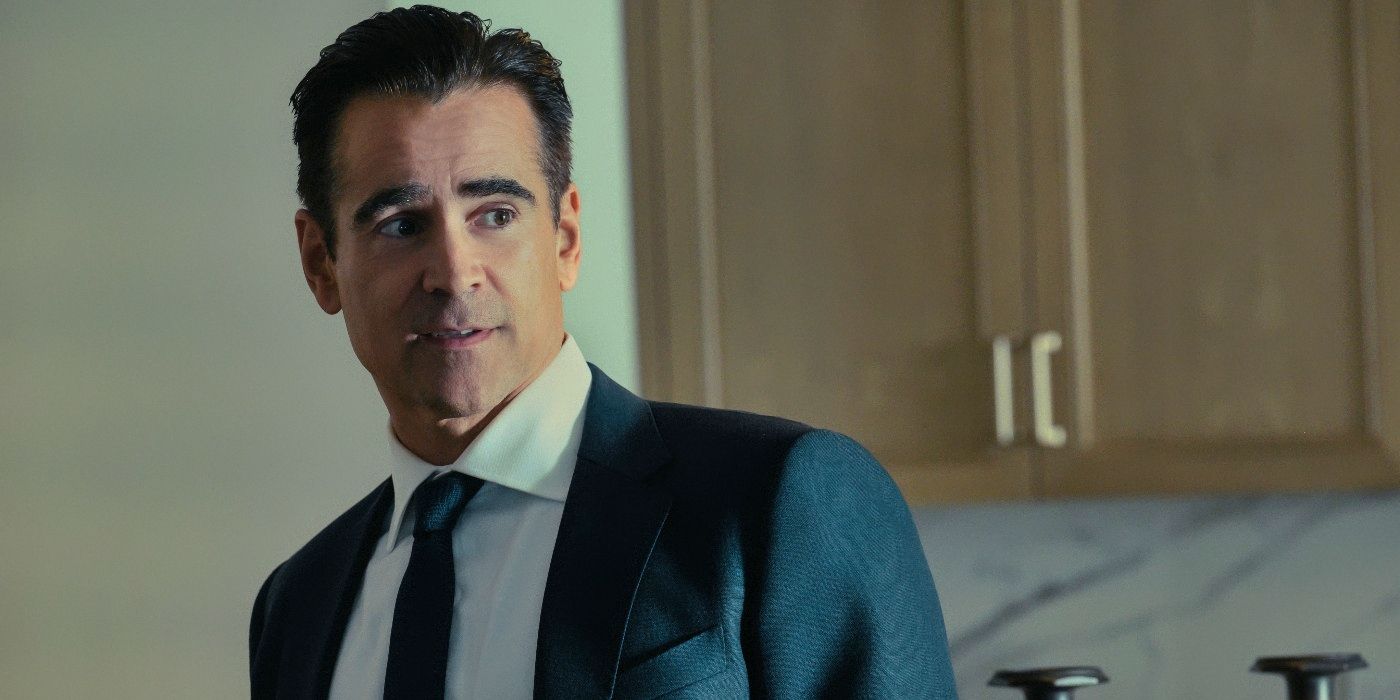
Related
‘Sugar’s Big Twist Completely Changes the Show
It also adds a whole new layer to the series’ noir leanings.
That’s the thing that I don’t think a lot of people realize is just how little is shooting in LA now.
FARRELL: It wasn’t set in LA, originally. I think it was set on the east coast, and I said, “I’ll do it if you shoot it in LA.” So, that was a deal-breaker for me.
That also tells you where you’re at because they’re willing to accommodate.
FARRELL: That was a big accommodation.
There’s something else, though, which people don’t talk about, which is for the second season when you need to cast secondary roles, you have this amazing talent pool of actors who want to work in LA, so all of your supporting characters can be really good actors.
FARRELL: Hopefully. And the scripts just came in. I haven’t read them yet because I’ve been hawking The Penguin, but I just got the first two scripts, and I know that Sam Catlin, who’s our showrunner, he’s got the first seven episodes and then he’s going to take a few months because we don’t start shooting until April. He’s going to take his time and write a killer eighth episode. Sam is an extraordinary writer, so we’re in really good hands.
All eight episodes of The Penguin are available to stream on HBO Max.
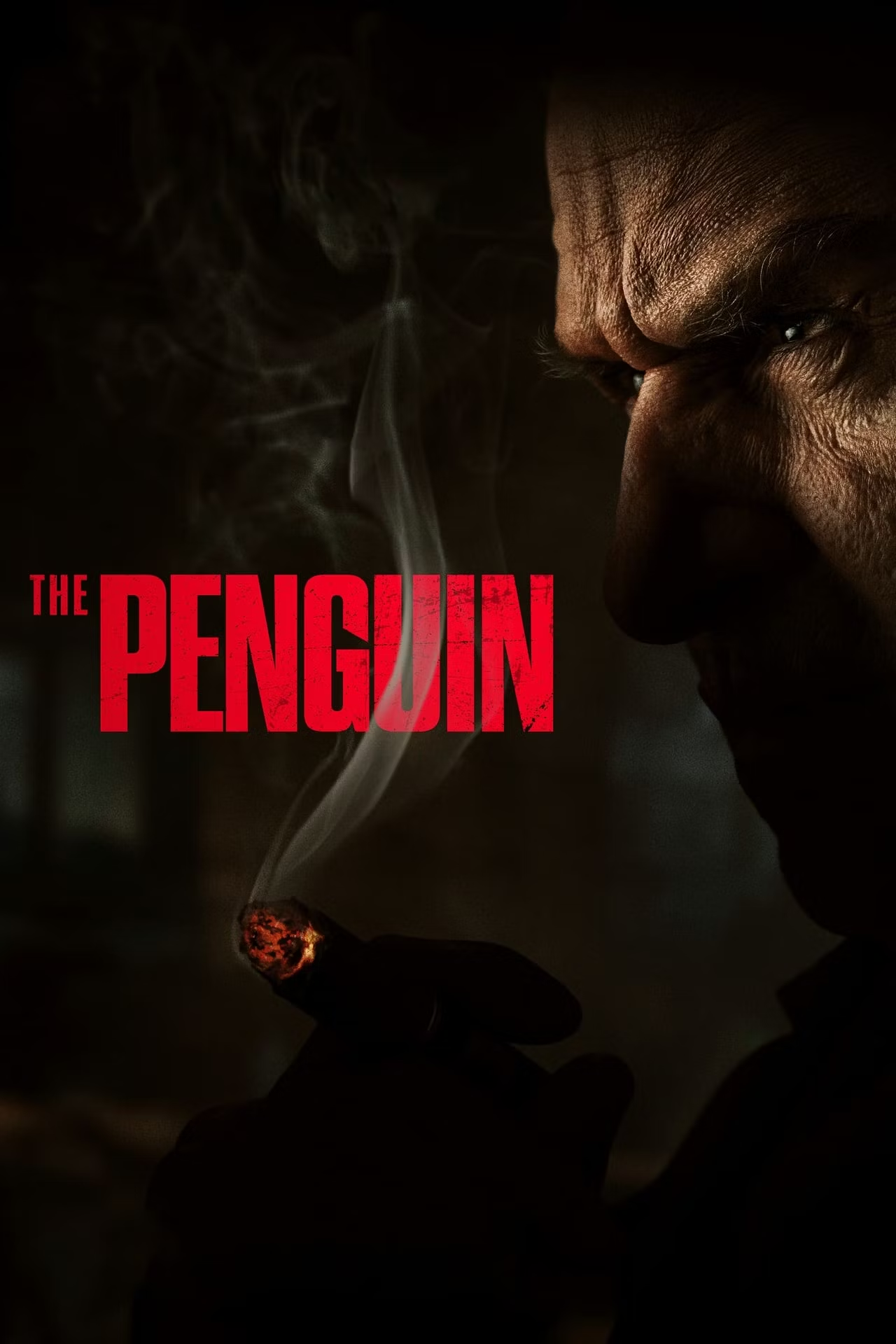
It follows the transformation of Oswald Cobblepot from a disfigured nobody to a noted Gotham gangster.
- Cast
- Colin Farrell , Cristin Milioti , Rhenzy Feliz , Michael Kelly , Shohreh Aghdashloo , Deirdre O’Connell , Clancy Brown , James Madio , Scott Cohen , Michael Zegen , Carmen Ejogo , Theo Rossi
- Writers
- Lauren LeFranc
- Franchise(s)
- Batman , DC Elseworlds
- Showrunner
- Lauren LeFranc
![Colin Farrell Answers All Your ‘The Penguin’ Season 1 Questions and Breaks Down That Shocking Finale [Exclusive] Colin Farrell Answers All Your ‘The Penguin’ Season 1 Questions and Breaks Down That Shocking Finale [Exclusive]](https://i2.wp.com/static1.colliderimages.com/wordpress/wp-content/uploads/2024/10/custom-image-the-penguin-colin-farrell.jpg?w=1200&resize=1200,0&ssl=1)
